paypal mafia
description: a group of former PayPal employees and founders who have since founded and developed additional technology companies such as Tesla, LinkedIn, and Palantir
51 results
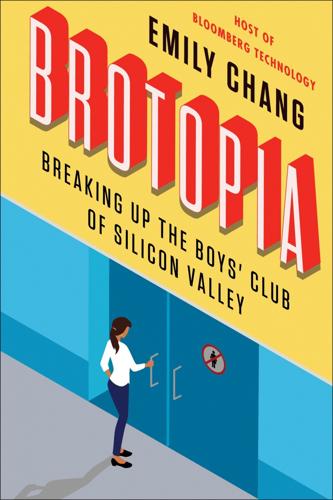
Brotopia: Breaking Up the Boys' Club of Silicon Valley
by
Emily Chang
Published 6 Feb 2018
Even though the valuation of Zenefits was slashed amid the cheating scandal, it still reached $2 billion. (Sacks has since left Zenefits.) And this is just a partial list. The PayPal Mafia became so dominant that in 2017 Adam Pisoni—an entrepreneur who never worked at PayPal but was recruited by Sacks to be his Yammer co-founder—cited what he called the Mafia’s “dynastic privilege” as “one of the major contributors to the lack of diversity” in Silicon Valley. “I am a product of the ‘PayPal Mafia dynasty,’” Pisoni wrote in a Medium post. “I co-founded Yammer with one of the original PayPal mafia members. Yammer had an easier time raising capital because of our PayPal connection.” Yammer, like PayPal, had an all-white, all-male founding team, which hired mostly white men from their networks early, who all in turn benefited greatly from Sacks’s Mafia ties.
…
Every one of them became very rich. Not one of them was a woman. A photograph of the PayPal Mafia on the cover of Fortune magazine in 2007 pictures the men posing as gamblers with cigars, drinks, and a deck of cards. “It just makes me cringe that there’s not one female in that photo,” says Amy Klement. “It drives me crazy because there were some really successful women at PayPal.” While they might not have been founders, these women, she says, were written out of history. Did the mythical status the PayPal Mafia acquired perpetuate the idea that successful start-ups were founded by groups of male friends?
…
“With benefit of hindsight, Affirm is very different,” he says. Thiel has made no such mea culpas. Indeed, in Zero to One, he embraces the term “PayPal Mafia,” a moniker that is deeply fraught with connotations of misogyny, male dominance, and the brutal exclusion of anyone outside the group. Zero to One has now been read by hundreds of thousands of people worldwide, including many would-be entrepreneurs, all hoping to create their own billionaire mafia. A CRITIQUE OF MERITOCRACY Believing that they hired on merit from the start, the PayPal Mafia has evangelized that Silicon Valley epitomizes meritocracy. “If meritocracy exists anywhere on earth, it is in Silicon Valley,” David Sacks told the New York Times in 2014.
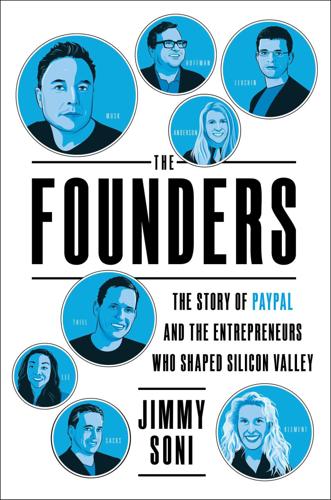
The Founders: The Story of Paypal and the Entrepreneurs Who Shaped Silicon Valley
by
Jimmy Soni
Published 22 Feb 2022
Her criticism was justified: even as of November 2000, the company’s 150-person phone list was one-third female, including several individuals—Julie Anderson, Denise Aptekar, Kathy Donovan, Donna Driscoll, Sarah Imbach, Skye Lee, Lauri Schultheis, and Amy Rowe Klement, among others—who worked in executive positions and played vital roles in the company’s growth and success. The iconography of the PayPal Mafia photo turned into a false idol—and a worrying one. As carefully documented in Emily Chang’s book Brotopia and elsewhere, Silicon Valley has long had troubles with ensuring that women are treated equitably in hiring, fundraising, promotion, boardroom representation, and in the recognition of their achievements. The PayPal Mafia photo and mythology exacerbated this problem, and it gave photographic evidence of the “boys’ club” critique. For some PayPal alumni, the photo served as an unfortunate symbol of how a once-united team fractured in PayPal’s aftermath.
…
While I strained to avoid contemporizing my subjects too much—obsessing over this or that modern Tweet or recent utterance—I did want to track the influence of the alumni group as a group. Unsurprisingly, the moniker “PayPal Mafia” was popular among the technology set. In the aftermath of an IPO or significant company acquisition, Twitter and other forums would light up with mentions of this-or-that would-be “mafia.” The term was especially popular abroad. In Europe, there was the “fintech Mafia” created by the success of Revolut and Monzo; in Canada, the alumni of Workbrain were similarly spotlighted. In Africa, the cofounders of Kenya’s Kopo Kopo spoke explicitly about wanting to build the “PayPal Mafia of East Africa.” In India, there was talk of how the success of e-commerce giant Flipkart had given rise to “the Flipkart Mafia.”
…
The networks Stephen and Chris had been exposed to dealt in laundered money, drugs, and violence and went by a different name: gangs. “The PayPal mafia was the positive example of a gang,” Stephen said. “A lot of the guys in prison link up together for the wrong reasons. They don’t have a lot of positive friendships.” * * * The story spilled out of their cell. In their course for new inmates, Chris and Stephen titled their first lesson “What You Can Learn from the PayPal Mafia.” They photocopied their article collection and distributed it, with the mafia photo as the cover sheet. “It’s a really dark photo, and I used to get pissed off because people kept wanting to photocopy the original,” Stephen said, “but I wanted them to photocopy a photocopy so that the original didn’t get ruined!”
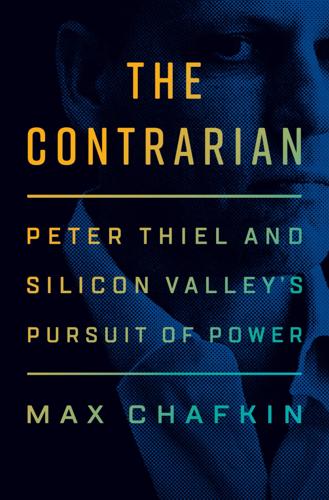
The Contrarian: Peter Thiel and Silicon Valley's Pursuit of Power
by
Max Chafkin
Published 14 Sep 2021
The Apollo program would buy hundreds of thousands of Fairchild-designed chips, setting off an economic boom up and down the San Francisco Peninsula that ultimately led to personal computers, websites, cryptocurrencies, smart watches, and really all of twenty-first-century capitalism. Fairchild employees, a PayPal Mafia before the PayPal Mafia, fanned out across the Valley, starting many of the most important tech companies and venture capital firms. In the popular imagination—colored by the successes that have come since, especially those of Steve Jobs—the story of the Traitorous Eight has come to represent the spirit of rebellion that is said to pervade the tech industry.
…
More recently, it became a key player in the Trump administration’s immigration and defense projects. The company is worth around $50 billion; Thiel controls it and is its biggest shareholder. As impressive as this entrepreneurial resume might be, Thiel has been even more influential as an investor and backroom deal maker. He leads the so-called PayPal Mafia, an informal network of interlocking financial and personal relationships that dates back to the late 1990s. This group includes Elon Musk, plus the founders of YouTube, Yelp, and LinkedIn. They would provide the capital to Airbnb, Lyft, Spotify, Stripe, DeepMind—now better known as Google’s world-leading artificial intelligence project—and, of course, to Facebook.
…
When cities complained that Uber was breaking the law, Kalanick replaced his Twitter avatar with a picture of an Ayn Rand cover, and, as I reported in Businessweek, employees at the company’s driverless car division distributed stickers that proudly proclaimed, “Safety Third.” This was all, in a way, an extension of PayPal. “The PayPal Mafia philosophy became the founding principle for an entire generation of tech companies,” said McNamee. * * * — even so, in late 2000, Thiel wasn’t thinking about moving fast and breaking things. The tech crash was well underway, and he was thinking about surviving. If Thiel wanted to avoid the fate of companies like Pets.com, he desperately needed to reduce PayPal’s losses, which meant dealing with fraud.
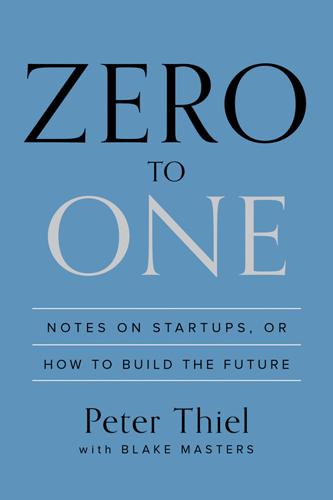
Zero to One: Notes on Startups, or How to Build the Future
by
Peter Thiel
and
Blake Masters
Published 15 Sep 2014
“Company culture” doesn’t exist apart from the company itself: no company has a culture; every company is a culture. A startup is a team of people on a mission, and a good culture is just what that looks like on the inside. BEYOND PROFESSIONALISM The first team that I built has become known in Silicon Valley as the “PayPal Mafia” because so many of my former colleagues have gone on to help each other start and invest in successful tech companies. We sold PayPal to eBay for $1.5 billion in 2002. Since then, Elon Musk has founded SpaceX and co-founded Tesla Motors; Reid Hoffman co-founded LinkedIn; Steve Chen, Chad Hurley, and Jawed Karim together founded YouTube; Jeremy Stoppelman and Russel Simmons founded Yelp; David Sacks co-founded Yammer; and I co-founded Palantir.
…
I thought stronger relationships would make us not just happier and better at work but also more successful in our careers even beyond PayPal. So we set out to hire people who would actually enjoy working together. They had to be talented, but even more than that they had to be excited about working specifically with us. That was the start of the PayPal Mafia. RECRUITING CONSPIRATORS Recruiting is a core competency for any company. It should never be outsourced. You need people who are not just skilled on paper but who will work together cohesively after they’re hired. The first four or five might be attracted by large equity stakes or high-profile responsibilities.
…
Kaczynski, Ted Karim, Jawed Karp, Alex, 11.1, 12.1 Kasparov, Garry Katrina, Hurricane Kennedy, Anthony Kesey, Ken Kessler, Andy Kurzweil, Ray last mover, 11.1, 13.1 last mover advantage lean startup, 2.1, 6.1, 6.2 Levchin, Max, 4.1, 10.1, 12.1, 14.1 Levie, Aaron lifespan life tables LinkedIn, 5.1, 10.1, 12.1 Loiseau, Bernard Long-Term Capital Management (LTCM) Lord of the Rings (Tolkien) luck, 6.1, 6.2, 6.3, 6.4 Lucretius Lyft MacBook machine learning Madison, James Madrigal, Alexis Manhattan Project Manson, Charles manufacturing marginal cost marketing Marx, Karl, 4.1, 6.1, 6.2, 6.3 Masters, Blake, prf.1, 11.1 Mayer, Marissa Medicare Mercedes-Benz MiaSolé, 13.1, 13.2 Michelin Microsoft, 3.1, 3.2, 3.3, 4.1, 5.1, 14.1 mobile computing mobile credit card readers Mogadishu monopoly, monopolies, 3.1, 3.2, 3.3, 5.1, 7.1, 8.1 building of characteristics of in cleantech creative dynamism of new lies of profits of progress and sales and of Tesla Morrison, Jim Mosaic browser music recording industry Musk, Elon, 4.1, 6.1, 11.1, 13.1, 13.2, 13.3 Napster, 5.1, 14.1 NASA, 6.1, 11.1 NASDAQ, 2.1, 13.1 National Security Agency (NSA) natural gas natural secrets Navigator browser Netflix Netscape NetSecure network effects, 5.1, 5.2 New Economy, 2.1, 2.2 New York Times, 13.1, 14.1 New York Times Nietzsche, Friedrich Nokia nonprofits, 13.1, 13.2 Nosek, Luke, 9.1, 14.1 Nozick, Robert nutrition Oedipus, 14.1, 14.2 OfficeJet OmniBook online pet store market Oracle Outliers (Gladwell) ownership Packard, Dave Page, Larry Palantir, prf.1, 7.1, 10.1, 11.1, 12.1 PalmPilots, 2.1, 5.1, 11.1 Pan, Yu Panama Canal Pareto, Vilfredo Pareto principle Parker, Sean, 5.1, 14.1 Part-time employees patents path dependence PayPal, prf.1, 2.1, 3.1, 4.1, 4.2, 4.3, 5.1, 5.2, 5.3, 8.1, 9.1, 9.2, 10.1, 10.2, 10.3, 10.4, 11.1, 11.2, 12.1, 12.2, 14.1 founders of, 14.1 future cash flows of investors in “PayPal Mafia” PCs Pearce, Dave penicillin perfect competition, 3.1, 3.2 equilibrium of Perkins, Tom perk war Perot, Ross, 2.1, 12.1, 12.2 pessimism Petopia.com Pets.com, 4.1, 4.2 PetStore.com pharmaceutical companies philanthropy philosophy, indefinite physics planning, 2.1, 6.1, 6.2 progress without Plato politics, 6.1, 11.1 indefinite polling pollsters pollution portfolio, diversified possession power law, 7.1, 7.2, 7.3 of distribution of venture capital Power Sellers (eBay) Presley, Elvis Priceline.com Prince Procter & Gamble profits, 2.1, 3.1, 3.2, 3.3 progress, 6.1, 6.2 future of without planning proprietary technology, 5.1, 5.2, 13.1 public opinion public relations Pythagoras Q-Cells Rand, Ayn Rawls, John, 6.1, 6.2 Reber, John recession, of mid-1990 recruiting, 10.1, 12.1 recurrent collapse, bm1.1, bm1.2 renewable energy industrial index research and development resources, 12.1, bm1.1 restaurants, 3.1, 3.2, 5.1 risk risk aversion Romeo and Juliet (Shakespeare) Romulus and Remus Roosevelt, Theodore Royal Society Russia Sacks, David sales, 2.1, 11.1, 13.1 complex as hidden to non-customers personal Sandberg, Sheryl San Francisco Bay Area savings scale, economies of Scalia, Antonin scaling up scapegoats Schmidt, Eric search engines, prf.1, 3.1, 5.1 secrets, 8.1, 13.1 about people case for finding of looking for using self-driving cars service businesses service economy Shakespeare, William, 4.1, 7.1 Shark Tank Sharma, Suvi Shatner, William Siebel, Tom Siebel Systems Silicon Valley, 1.1, 2.1, 2.2, 2.3, 5.1, 5.2, 6.1, 7.1, 10.1, 11.1 Silver, Nate Simmons, Russel, 10.1, 14.1 singularity smartphones, 1.1, 12.1 social entrepreneurship Social Network, The social networks, prf.1, 5.1 Social Security software engineers software startups, 5.1, 6.1 solar energy, 13.1, 13.2, 13.3, 13.4 Solaria Solyndra, 13.1, 13.2, 13.3, 13.4, 13.5 South Korea space shuttle SpaceX, prf.1, 10.1, 11.1 Spears, Britney SpectraWatt, 13.1, 13.2 Spencer, Herbert, 6.1, 6.2 Square, 4.1, 6.1 Stanford Sleep Clinic startups, prf.1, 1.1, 5.1, 6.1, 6.2, 7.1 assigning responsibilities in cash flow at as cults disruption by during dot-com mania economies of scale and foundations of founder’s paradox in lessons of dot-com mania for power law in public relations in sales and staff of target market for uniform of venture capital and steam engine Stoppelman, Jeremy string theory strong AI substitution, complementarity vs.
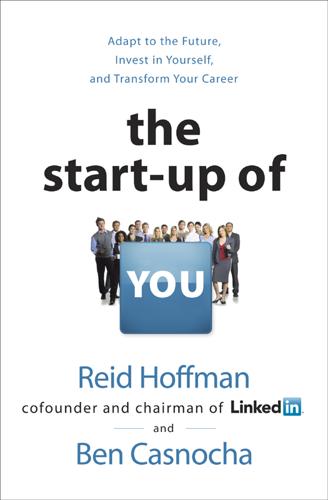
The Start-Up of You: Adapt to the Future, Invest in Yourself, and Transform Your Career
by
Reid Hoffman
and
Ben Casnocha
Published 14 Feb 2012
I asked two former colleagues from Socialnet, a former college classmate, and a former colleague from Fujitsu to cofound the company with me. Peter Thiel and Keith Rabois from the PayPal mafia and a few others invested in the business. A former colleague from PayPal even provided LinkedIn’s first office space. An appropriate founding for a business with the tagline RELATIONSHIPS MATTER. To recap some of the qualities of the PayPal mafia: high-quality people, a common bond, an ethos of sharing and cooperation, concentrated in a region and industry. These make it rich in opportunity flow, and the same factors make any network and association worth your while.
…
After eBay acquired PayPal, the members of the PayPal executive team each moved on to new projects but stayed connected, investing in one another’s companies, hiring one another, sharing office space, and the like. There are no membership dues, no secret handshakes, no monthly meetings; just informal collaboration. Yet these connections have spawned some of the most successful projects in Silicon Valley. As a result, the group got the name “the PayPal mafia.” What is it about this network that makes it such a uniquely rich source of opportunities? First, each individual is high-quality. This is fundamental: A group is only as good as its members. The network is only as good as its nodes. Evaluate a group by evaluating the individual people. Second, the gang has something in common—the shared experience of PayPal, and the interests and values that led everyone there.
…
These make it rich in opportunity flow, and the same factors make any network and association worth your while. Finally, the only thing better than joining groups is starting your own. Start your own mafia—your own group, meetup, or association with PayPal mafia characteristics. Once a year I co-organize something I call the Weekend to Be Named Later, a Franklin-inspired gathering of ambitious friends, to brainstorm ways to change the world. Since 2006 Ben has co-run a Junto modeled after Franklin’s original: a couple dozen folks (mainly from the tech industry) meet regularly over lunch to talk shop. The gatherings are focused yet informal, like Franklin’s.
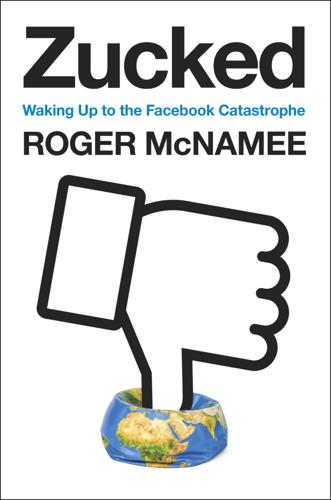
Zucked: Waking Up to the Facebook Catastrophe
by
Roger McNamee
Published 1 Jan 2019
Peter Thiel, Elon Musk, Reid Hoffman, Max Levchin, Jeremy Stoppleman, and their colleagues were collectively known as the PayPal Mafia, and their impact transformed Silicon Valley. Not only did they launch Tesla, Space-X, LinkedIn, and Yelp, they provided early funding to Facebook and many other successful players. More important than the money, though, were the vision, value system, and connections of the PayPal Mafia, which came to dominate the social media generation. Validation by the PayPal Mafia was decisive for many startups during the early days of social media. Their management techniques enabled startups to grow at rates never before experienced in Silicon Valley.
…
Their management techniques enabled startups to grow at rates never before experienced in Silicon Valley. The value system of the PayPal Mafia helped their investments create massive wealth, but may have contributed to the blindness of internet platforms to harms that resulted from their success. In short, we can trace both the good and the bad of social media to the influence of the PayPal Mafia. * * * — THANKS TO LUCKY TIMING, Facebook benefitted not only from lower barriers for startups and changes in philosophy and economics but also from a new social environment. Silicon Valley had prospered in the suburbs south of San Francisco, mostly between Palo Alto and San Jose.
…
Rowe Price, 24–27 Washington Monthly essay of, 155, 159–62 Washington trips of, 111–20, 121 McSweeney, Terrell, 113–14 Médecins Sans Frontières, 178 media, 6, 17, 68, 69, 81, 105, 106, 153, 162 Medium, 47, 84 menu choices, 96 Mercer, Robert, 180–82, 197, 199 meritocracy, 44–45 Messenger, 67, 70, 85, 139, 140, 207, 232 Kids, 254 Messing with the Enemy (Watts), 94 Metcalfe’s Law, 32, 33, 36, 38 metrics, 73, 76–78, 126, 145, 206, 216 Microsoft, 25, 35, 42, 152, 154, 172–73, 261 antitrust case against, 46–47, 154–55, 286 Facebook and, 14, 15, 59–60, 65 words associated with, 231 Milk, Harvey, 22 MIT, 177 MIT Technology Review, 102 Mohan, Neal, 93 monopolies, see antitrust and monopoly issues Moonalice, 8 Facebook and, 73–75 Moore’s Law, 32, 33, 36 Morgan, Jonathon, 90 Morgan Stanley, 27, 28 Mosaic, 36, 38 Mosseri, Adam, 179 Motherboard, 229–30 Motorola, 34 MoveOn, 60, 66 Mozilla, 40 MSNBC, 133, 161 Mueller, Robert, 119, 169, 171–75 Musk, Elon, 48 Muslims, 90, 91, 126, 131, 178, 215, 254 Myanmar, 178–80, 204, 213, 215, 232, 239, 245, 254, 265, 277, 278 MySpace, 42, 55, 152 Nadella, Satya, 173 Napster, 38, 54 Narendra, Divya, 53–54 NASA, 32 Nasdaq, 71 National Venture Capital Association, 46 neoliberalism, 45, 137 Netflix, 41, 97, 105 net neutrality, 37, 120 Netscape, 27, 38, 58, 152 network effects, 47, 162, 246, 253, 284 New Knowledge, 121 news feeds, 97 Facebook, 59, 60, 68, 70, 74, 75, 88, 89, 90–91, 97, 165–66, 208–9, 243, 244, 247 News on the Web (NOW), 231 newspapers, 93, 102 Newton, Casey, 167 New York Sun, 106 New York Times, 146, 166, 180, 193, 226, 229, 282 Nielsen, 65–66 Nix, Alexander, 182, 197 notifications, 97–99, 107, 271 Nunes, Devin, 132 Obama, Barack, 90, 112, 117, 130, 166, 196, 197 Observer, 180, 181 Oculus, 139, 144, 223, 261 Onavo, 139–40 ONE campaign, 159 One Laptop per Child, 188 OpenID Connect, 158 Open Markets Institute, 136, 155, 285 open source community, 37–38, 40 Oracle, 46, 152 Orwell, George, 267 Oxford Dictionary of American English, 230–31 Page, Larry, 27 Palihapitiya, Chamath, 146–49, 152, 160 Pallone, Frank, 210 Parakilas, Sandy, 146, 161, 187–89, 191, 192, 242 Pariser, Eli, 66–67, 109 Parkland school shooting, 174 passwords and log-ins, 249–50, 271 PayPal, 48, 249 PayPal Mafia, 48 Parker, Sean, 38, 54, 55, 64, 147–49 Pearlman, Bret, 14 Pelosi, Nancy, 167, 227 personalization, 105 persuasive techniques, 17, 83–84, 96–99, 101, 106, 207, 233, 251, 257, 274 Persuasive Technology (Fogg), 83–84; see also Fogg, B. J. Pet Society, 195 Philippines, 215, 246 Pincus, Mark, 38 Pizzagate, 124–26, 130 Plaxo, 38 polarization, 89–90, 274 Politico, 211 populism, 117 pornography, 55, 228 Postman, Neil, 267 Powell, John, 25, 27, 61 power, 3 preference bubbles, 93–96, 127, 246, 255, 269, 278, 281 presidential election of 2016, 6, 11, 12, 17, 96, 125, 156, 159, 162, 165, 185, 254, 256 Facebook and, 183, 190, 232, 278; see also Cambridge Analytica; Russia and McNamee’s email to Zuckerberg and Sandberg, 4–6, 149, 152, 160–61 Russian interference with, 1, 5, 12, 62, 94, 111, 114–19, 121–33, 135, 145–46, 149, 152–54, 166, 168–72, 187, 193–94, 203, 207–8, 213, 217, 228, 244, 245, 251 price, 285 Prince, 165 privacy, see data and data privacy Procter & Gamble, 173 ProPublica, 11, 245 psychographics, 181–82, 185 public health, 82, 83, 86, 155, 156, 203, 217, 220, 227, 234, 235, 238, 253, 256, 257, 263–65, 277, 279, 281–83 behavioral addiction, 100–101, 106–7, 162, 206, 240, 246, 250, 253, 254, 257, 268, 269, 281 Facebook’s threat to, 246 Radius, 26 Reagan, Ronald, 45, 46, 137, 277 Rear Window, 1–2, 11 reciprocity, desire for, 98–99 Recode, 193 McNamee’s op-ed for, 5–7 Reddit, 102, 123 Refghi, Matt, 99 regulation, 45, 47–48, 199–203, 247, 264 antitrust, see antitrust and monopoly issues environmental, 201 of internet platforms, 201, 279–80, 282–84, 287 privacy and, 201 of technology, 47–48, 112–14, 130, 173, 201, 206, 208, 220–21, 238, 282–83 Republican Party, Republicans, 116, 117, 132, 197 Reuters, 215 Riccitiello, John, 14 Road Ahead, The (Gates), 154 Road to Unfreedom, The (Gates), 154 Robinson, Jackie, 18 Rohingya minority, 178–80, 215, 245, 254, 278 Roosevelt, Franklin, 18 Rose, Dan, 1, 6–7, 11, 152 Rubin, Andy, 282 Russia, 78, 252, 258 Facebook and, 90, 115–17, 119, 124, 126, 130–32, 145–46, 149, 152–54, 166, 168–72, 187, 193–94, 203, 207–8, 217, 228, 244, 245, 251 and hacks of Democrats’ servers, 11 and presidential election of 2016, 1, 5, 12, 62, 94, 111, 114–19, 121–33, 135, 145–46, 149, 152–54, 166, 168–72, 187, 193–94, 203, 207–8, 213, 217, 228, 244, 245, 251 secession movements and, 114–15 Trump and, 12, 111, 117 Twitter and, 122–24, 131, 169, 174 Sandberg, Sheryl, 3, 17, 28, 60–61, 67, 72, 73, 78, 144, 145, 191, 193–94, 239 Cambridge Analytica scandal and, 193–94 and criticisms of Facebook, 3, 89, 141, 146, 149, 160–61, 169, 230 and Facebook decision making and organization, 144–45, 154, 160 Facebook joined by, 5, 16, 60, 61, 64 and Facebook study on emotional contagion, 89 at Google, 61, 144 management philosophy of, 145 McGinn as personal pollster for, 167–69, 172 McNamee’s email to Zuckerberg and, 4–6, 149, 152, 160–61, 280, 297–300 Sanders, Bernie, 125, 196 Facebook Groups and, 7–8, 116 San Francisco, Calif., 20–22, 49–50 Schiff, Adam, 123, 132 Schmidt, Eric, 112 Schneiderman, Eric, 119–20 Schrage, Elliot, 144, 191 Science, 177 SCL Group, 180–82, 187 Senate, U.S.: Committee on Commerce, Science, and Transportation, 209 Google and, 282 Judiciary Committee, 128, 131, 132, 136, 209 Select Committee on Intelligence, 12, 111–12, 127, 132 Sherman Antitrust Act, 136 Signal, 271 Silicon Valley, 3, 5, 10, 15, 16, 26, 31–51, 83, 84, 104, 110, 112, 118, 130, 147, 151–52, 157, 173, 194, 197, 206, 225, 248, 253, 254, 263, 269, 274 diversity and, 45 libertarianism and, 44–45, 49 women in, 49–50 see also technology Silver Lake Partners, 28–30 Sinclair, Upton, 110 Siri, 43 SixDegrees.com, 54–55 60 Minutes, 81, 109, 161 Skype, 70 Slack, 41 Slate, 179, 186, 231 smartphones, 17, 59, 81, 84, 101, 105–8, 158, 225, 233, 250, 253, 255, 261, 265, 267, 269, 272–74 Android, 138, 204, 271, 282 checking of, 86–87, 99, 100, 257, 271 iPhone, 38, 84, 100, 105–6, 271 social apps on, 106 Snapchat, 99, 110, 140, 156, 214, 246, 253 Snyder, Timothy, 278 social graphs, 55, 70, 224, 264 social media, 38, 41, 48, 54–56, 63, 69, 102–5, 147, 153, 155, 177, 213 extreme views and, 91 human-driven, 108 mobile platforms and, 106 Social Network, The, 65 social reciprocity, 98–99 Soros, George, 159–63 World Economic Forum speech of, 159–63, 301–12 Space-X, 48 Speak & Spell, 22 Squawk Alley, 118 Sri Lanka, 178, 180, 204, 232, 239, 245, 247, 254, 277 Stamos, Alex, 119, 174, 183–84, 191–92 Standard Oil, 47, 136, 137 Stanford University, 54, 83, 107, 146–48, 160 startups, 40–41, 43, 45, 48–50, 104, 223–25, 259, 261–63, 284 lean, 41–42, 46, 48 state attorneys general, 120, 172, 227 Stein, Gertrude, 213 Stewart, Martha, 27 Steyer, Jim, 119, 156 Stoppleman, Jeremy, 48 Stretch, Colin, 131–33 suicide, 213 Summers, Larry, 60 Sun Microsystems, 26, 152 Sunstein, Cass, 90 Sybase, 26 Taylor, Bob, 34 technology, ix, 1, 9–10, 13, 31–51, 104, 106, 121, 135, 165, 177, 206, 214, 235–36, 238, 250–51, 254–55, 257, 258, 267–75, 282 addiction to, 100–101, 106–7, 162, 206, 240, 246, 250, 253, 254, 257, 268, 269, 281 business shift in, 33 changing personal usage of, 274 children and, 106, 156, 166, 237, 255, 268, 269, 272–73, 279–80 government era of, 32–33 human-driven, see human-driven technology and humane design McNamee’s investments in, 1, 7, 21, 24–30, 56–57 regulation of, 47–48, 112–14, 130, 173, 201, 206, 208, 220–21, 238, 282–83 society changed by, 10, 87 as value neutral, 129 see also Silicon Valley TED Conference, 66–67, 109–10, 111 television, 10, 17, 68, 87, 105, 106, 125–26, 158, 267, 284 terms of service, 100, 102, 114, 159, 253–54 Facebook, 97, 178, 182, 211, 253–54 terrorism, 230 Tesla, 48 Texas secession movement, 114–15 texting, 254, 255, 269, 271 Thiel, Peter, 45, 48, 54, 58, 113 3Com, 32 time sharing, 33 Time Well Spent, 108, 157 Tinder, 207, 218 transistor, 225, 226 trolls, 90, 116, 124, 126, 253 T.
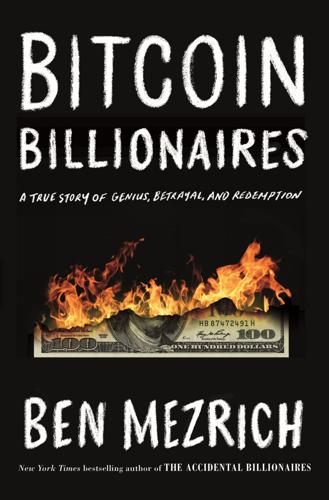
Bitcoin Billionaires: A True Story of Genius, Betrayal, and Redemption
by
Ben Mezrich
Published 20 May 2019
Having interned at PayPal while still a student at Stanford, he’d gone on to work at Peter Thiel’s hedge fund, Clarium Capital, and later had cofounded Palantir Technologies with Thiel and Alex Karp. Both Lonsdale and Thiel were chess geniuses known to battle it out with each other for hours on end. Thiel himself was, of course, a Valley legend, having founded PayPal, and was considered the “don” of the “PayPal Mafia”—a group of PayPal alums who’d gone on to start a slew of world-changing companies. The group included Elon Musk (Tesla, SpaceX), Reid Hoffman (LinkedIn), David Sacks (Yammer), Ken Howery (Founders Fund), Max Levchin (Yelp), and others. Thiel also happened to have been the first investor in Facebook; he turned a $500,000 check into a billion-dollar investment, a mind-blowing 13,000x return.
…
They were close to the bare metal, the 1s and 0s, bits and bytes, not the more user-friendly, abstracted layers. Tyler certainly recognized brilliant billionaires among them, such as Max Levchin, who had cofounded PayPal with Thiel. Levchin was credited with decimating fraud on the network in the early days, and was a leading member of the PayPal Mafia. Tyler also saw true protocol royalty in the form of Bram Cohen, who had built BitTorrent and essentially invented decentralized, peer-to-peer file sharing. Cohen was perhaps the greatest living protocol developer alive after Satoshi. Maybe, Tyler mused, he was Satoshi? And then there were fellow early Bitcoiners like Paul Bohm, an information security expert who had written one of the earliest blogs explaining Bitcoin mining; Mike Belshe, one of the first engineers to work the SPDY protocol used by Google in its Chrome browser; Matt Pauker and Balaji Srinivasan, who had cofounded a Bitcoin mining company called 21e6 (the scientific notation for the number twenty-one million, the total number of bitcoin that would ever be created); Srinivasan was also on the way to becoming the CTO of a company called Coinbase, a cryptocurrency exchange on a rapid rise in the industry.
…
He felt sure the originator must have been a team of people to put together something so perfect, so secure. Either that, or he was a genius on a whole different level. Tyler looked around the man cave. “Would it be fair to guess that Satoshi could be right here in this room?” Kaminsky didn’t disagree. Could it be Levchin, standing at the pool table nearby? The PayPal Mafia’s goal from the beginning was to create a universal currency for the internet, but they’d fallen short, eventually selling to eBay. PayPal was by all accounts a huge financial win for Levchin and his colleagues, and a huge win for the user-friendly nature of payments on the internet, but even so, it was a payment network that ran on the existing banking rails.
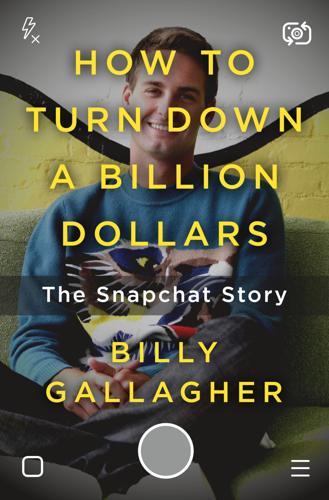
How to Turn Down a Billion Dollars: The Snapchat Story
by
Billy Gallagher
Published 13 Feb 2018
It would certainly be a more meaningful project than the silly photo-sharing apps their classmates were building. They felt like the next generation of the PayPal Mafia, a group of roughly two dozen entrepreneurs who left PayPal after selling the company to eBay in 2002. Members of the group went on to found Tesla, SpaceX, LinkedIn, YouTube, Yelp, and Palantir, among many other successful companies and venture capital firms. Not coincidentally, many of the members of the PayPal Mafia had studied at Stanford, often as classmates. Duplan received some money from his parents and a $15,000 grant from a summer program at the venture capital firm Highland Capital.
…
So, like Facebook before it, Clinkle would launch college by college and dominate these campus networks before opening up to the broader world. In the spring of 2012, Clinkle design chief Rob Ryan was a teaching assistant for a class on campus called CS 183: Startup. Peter Thiel, perhaps the crucial member of the PayPal Mafia as the company’s cofounder, taught students “how to build the future.” The course was so popular that Thiel and one of his students, Blake Masters, eventually published a book, Zero to One, based on the class and Masters’ notes.1 Thiel told the teaching assistants that they each had one golden ticket: an opportunity to pitch him their startup idea for venture capital funding.
…
See Shonduras (Shaun McBride) McCarthy, Barry McGregor, Jena Meerkat Micallef, Amanda Miller, Erick Mills, Wyatt Minelli, Liza Mossberg, Walt MPlatco (Michael Platco) MTV Murphy, Bobby Brown lawsuit and childhood and parents on Colbert Report Future Freshman and Kappa Sigma New Year’s Eve party (2012–2013) personality and temperament at $SNAP IPO as Snapchat Chief Technical Officer Snapchat’s origins and at Stanford Venice residence See also Snapchat Musk, Elon Myspace Nasr, Raymond NBA NBC NCAA Netflix NFL Super Bowl Nike Nikolaevna, Anastasia Nissenbaum, Helen Noto, Anthony Obama, Barack Okuyiga, Julian Onavo Onavo Protect (VPN app) Oracle Oscars. See Academy Awards Ouimet, Kirk Page, Larry Palantir Pandora Panzarino, Matthew patents PayPal PayPal Mafia Peanuts Movie, The (film) People (magazine) Pereira, Michaela Periscope (app) Perry, Katy Philips, Dennis photography front-facing cameras Platco, Michael. See MPlatco (Michael Platco) Poke (Facebook app) Polaroid camera pornography Powell, Amy Primack, Dan Qualcomm Quinn, David Quinn Emanuel Urquhart & Sullivan QR codes Snapcode Randall, Mike Recode Red Bull Reid, L.

Supremacy: AI, ChatGPT, and the Race That Will Change the World
by
Parmy Olson
Paul Graham and Peter Thiel, an early investor in Facebook, added to the $21 million pot of money Altman raised for the fund. Thiel, known today as an enigmatic billionaire whose ideas border on science fiction, would become a kingmaker in the quest to build powerful AI, helping to fund both Altman and Demis Hassabis in London. He was part of the so-called PayPal Mafia, an elite group of cofounders and executives from the online payment giant who invested in one another’s companies over many years and which included Elon Musk and LinkedIn founder Reid Hoffman. Altman put about 75 percent of Hydrazine’s money into companies graduating from Y Combinator, a strategy that paid off.
…
network effects and political divisions and scale of word embedding and Facebook AI Research facial recognition systems Fast Company fitness functions Foreign Policy Friedman, Milton Frontline FTX FTX Future Fund Future of Life Institute Gates, Bill Gebru, Timnit at Google concerns about bias and paper with Bender and recommendations for data set training and Gemini Genius Makers (Metz) “Gentle Seduction, The” (Stiegler) GitHub Copilot Go (board game) Goertzel, Ben Going Infinite (Lewis) Gomes, Ben Google acquisition of DeepMind and advertising and AI bias and Anthropic and Bard BERT and bias and buying of start-ups and ChatGPT and China and Chrome cloud computing and concerns tainting reputation of corporate bloat and data for AI training and DeepMind ethics and safety board and Gebru and gender discrimination and Google Brain Google Maps Google Translate Google X Graham on LaMDA and Lemoine and Meena chatbot and Mitchell and Open Research Group personal data principles regarding AI Project Maven and revenue of scale of Stochastic Parrots paper and Street View TPU and transformers and transition to Alphabet transparency issues and word embedding and Google Brain Google Brain Women and Allies group Google Effect Google Maps Google Translate Google X GPT-1 GPT-2 GPT-3 GPT-3.5 GPT-4 GPT-5 Graham, Paul Grand Theft Auto Greylock Partners Gulati, Sheila Hassabis, Angela Hassabis, Costas Hassabis, Demis AlphaGo and Altman and Bullfrog Productions and ChatGPT and chess and computers and culture of DeepMind and early life of Elixir Studios and ethics and safety oversight board and Facebook offer and formation of DeepMind and GIC plan and Google acquisition of DeepMind and Google DeepMind and ideas about artificial intelligence and interest in AI and Musk and neuroscience and OpenAI and philosophical battles over AI and Pichai and religion and role of at Google Singularity Summit and Suleyman and Theme Park game and Thiel and Hawley, Josh Helion Energy Hendon Baptist Church Hinton, Geoffrey Hoffman, Reid DeepMind and Microsoft connection and OpenAI and PayPal Mafia and as peacemaker Suleyman and Homer-Dixon, Thomas Hood, Amy Human Brain Project Huxley, Julian Hydrazine Capital IBM ImageNet independent boards Inflection Ingenuity Gap, The (Homer-Dixon) Instagram Intercept, The International Monetary Fund interplanetary colonization Ive, Jony James, Noreen job displacement John Burroughs school Jones, Llion Jurvetson, Steve Kaiser, Lukasz Karnofsky, Holden Kasparov, Garry Katzenberg, Jeffrey Keep America Beautiful Ke Jie Kindroid Klein, Ezra Koum, Jan Kurzweil, Ray Kuyda, Eugenia Language Model for Dialogue Applications (LaMDA) large language models LeCun, Yann Lee Sedol Legg, Shane artificial general intelligence (AGI) and DeepMind ethics and safety board and on early DeepMind struggles early life of Facebook offer and formation of DeepMind and funding for DeepMind and Google acquisition and Google’s autonomous units model and Hassabis and on Hassabis’s role at Google role at DeepMind and transhumanism and Lemoine, Blake Lessin, Jessica LessWrong Lewis, Michael Li, Fei-Fei Life You Can Save, The (Singer) LinkedIn Livingston, Jessica Loopt MacAskill, Will machine learning Making of the Atomic Bomb, The (Rhodes) Markham, Henry Massachusetts Institute of Technology McCauley, Tasha McDonagh, Joe, Elixir and Meena chatbot Meituan Meta.
…
See also Facebook Metz, Cade Microsoft Azure Bing ChatGPT and cloud computing and Copilot corporate bloat and facial recognition and Gebru and GitHub Copilot and Inflection and market capitalization of Microsoft Research Nadella and OpenAI and as partner for OpenAI Tay chatbot Visual Studio Microsoft Research Asia Millar, George Minecraft Mitchell, Margaret at Google concerns about bias paper with Bender and Molyneux, Peter Moskovitz, Dustin Mozilla Foundation Murati, Mira Musk, Elon AI Safety Summit and bad-mouthing of Hassabis and call for AI pause and DeepMind and effective altruism and fears about AI and Hassabis and ideological focus of interplanetary colonization and as member of PayPal Mafia and Neuralink and offer to acquire DeepMind of OpenAI and Page and PayPal and Twitter and Myanmar Nadella, Satya NASA Nectome Neeva Nest Netflix network effects Neuralink neural networks NeurIPS “Neuroscience-Informed Deep Learning” (Ng) Newsweek New Yorker New York Times NFL Ng, Andrew, at Google Nokia Nvidia Obama, Barack OpenAI AGI and AI Act and Altman’s removal from Amodei and bias in ChatGPT and capped-profit structure and ChatGPT and ChatGPT Plus Codex competition with DeepMind and computing power and DALL-E 2 effective altruism and funding and GPT-1 GPT-2 GPT-3 GPT-3.5 GPT-4 GPT-5 GPT Store and hallucination in ChatGPT and ideas behind internal concerns about ChatGPT large language models LessWrong community and Microsoft and Musk and principles and recruiting and Reddit and revenue of scale and Superalignment Team transformers and transparency issues and Open Philanthropy Oppenheimer, Robert Ord, Toby overview effect Page, Larry background of change in leadership at Google and ChatGPT response and China and DeepMind ethics and safety board and Future of Life Institute conference Go and Google acquisition of DeepMind and leadership of DeepMind and Musk and Ng and PageRank algorithm Pantic, Maja Parfit, Derek PayPal PayPal Mafia Penrose, Roger Piantadosi, Steven Pichai, Sundar AlphaGo and as CEO of Alphabet DeepMind and Google DeepMind and on Google employees starting businesses hopes for DeepMind research and on LaMDA leadership at Google and Pitchbook policing Politico Polosukhin, Illia Populous privacy, Loopt and Ptacek, Thomas H.
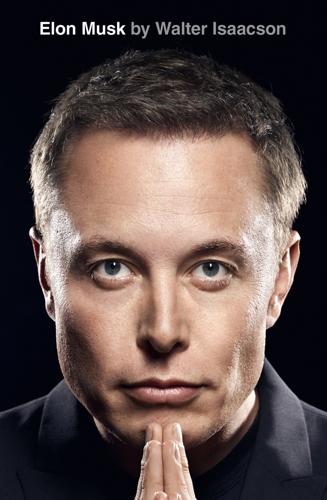
Elon Musk
by
Walter Isaacson
Published 11 Sep 2023
“Elon will say crazy stuff, but every once in a while, he’ll surprise you by knowing way more than you do about your own specialty. I think a huge part of the way he motivates people are these displays of sharpness, which people just don’t expect from him, because they mistake him for a bullshitter or goofball.” 13 The Coup PayPal, September 2000 The PayPal mafia Luke Nosek, Ken Howery, David Sacks, Peter Thiel, Keith Rope, Reid Hoffman, Max Levchin, Roelof Botha; Max Levchin Michael Moritz Street fight By late summer of 2000, Levchin found Musk increasingly difficult to deal with. He wrote Musk long memos outlining how fraud was threatening to bankrupt the company (one of them incongruously titled “Fraud Is Love”), but all he got in response were terse dismissals.
…
Facing personal bankruptcy and with Tesla in a financial crisis, it was hard to see how he was going to raise money for a fourth attempt. Then a surprising group came to the rescue: his fellow cofounders of PayPal, who had ejected him from the role of CEO eight years earlier. Musk had taken his ouster with unusual calm, and he stayed friendly with the coup leaders, including Peter Thiel and Max Levchin. The old PayPal mafia, as they called themselves, were a tight-knit crowd. They helped finance their former colleague David Sacks—the friend who took notes for Antonio Gracias in law school—when he produced the satirical movie Thank You for Smoking. Thiel teamed up with two other PayPal alums, Ken Howery and Luke Nosek, to form the Founders Fund, which invested mainly in internet startups.
…
“I don’t love the idea of being a house cat,” he said. The best way to prevent a problem was to ensure that AI remained tightly aligned and partnered with humans. “The danger comes when artificial intelligence is decoupled from human will.” So Musk began hosting a series of dinner discussions that included members of his old PayPal mafia, including Thiel and Hoffman, on ways to counter Google and promote AI safety. He even reached out to President Obama, who agreed to a one-on-one meeting in May 2015. Musk explained the risk and suggested that it be regulated. “Obama got it,” Musk says. “But I realized that it was not going to rise to the level of something that he would do anything about.”
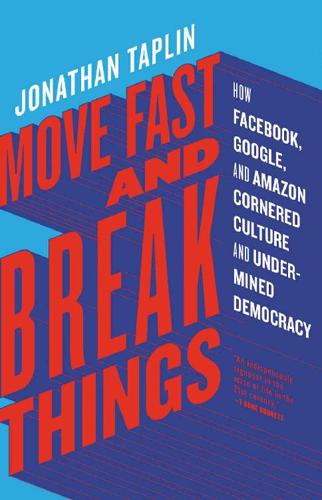
Move Fast and Break Things: How Facebook, Google, and Amazon Cornered Culture and Undermined Democracy
by
Jonathan Taplin
Published 17 Apr 2017
By the late 1980s, starting with eventual PayPal founder Peter Thiel’s class at Stanford University, the dominant philosophy of Silicon Valley would be based far more heavily on the radical libertarian ideology of Ayn Rand than the commune-based principles of Ken Kesey and Stewart Brand. Thiel, who was also an early investor in Facebook and is the godfather of what he proudly calls the PayPal Mafia, which currently rules Silicon Valley, has been clear about his credo, stating, “I no longer believe that freedom and democracy are compatible.” More important, Thiel says that if you want to create and capture lasting value, you should look to build a monopoly. Three of the companies that have played the largest role in imperiling artists are clear monopolies.
…
From the start, PayPal was pitched as a libertarian philosophy project, an effort to disrupt the credit card–banking system by offering an alternative way to make online payments. PayPal was also committed from the outset to avoiding government intrusion: Thiel does not believe in regulation, paying taxes, or guarding copyright. In addition, PayPal spawned a number of start-ups run by the young men of the PayPal Mafia, who founded YouTube, LinkedIn, Yelp, Palantir, and many other companies. It’s important to understand that while libertarian philosophy may have been regarded as a fringe movement in American politics, epitomized by Ron Paul followers, it has become the mainstream economic philosophy for both Silicon Valley and the Republican Party, thanks to the Koch brothers.
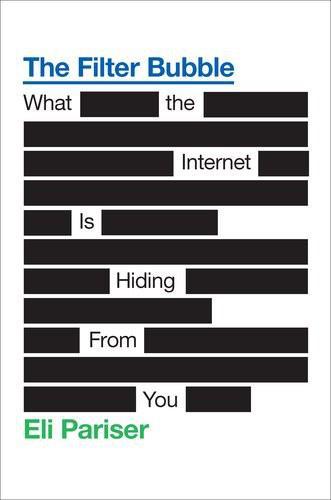
The Filter Bubble: What the Internet Is Hiding From You
by
Eli Pariser
Published 11 May 2011
execbios. 178 “come to Google because they choose to”: Greg Jarboe, “A ‘Fireside Chat’ with Google’s Sergey Brin,” Search Engine Watch, Oct. 16, 2003, accessed Dec. 16,2010, http://searchenginewatch.com/3081081. 178 “the future will be personalized”: Gord Hotckiss, “Just Behave: Google’s Marissa Mayer on Personalized Search,” Searchengineland, Feb. 23, 2007, accessed Dec. 16, 2010, http://searchengineland.com/just-behave-googles-marissa-mayer-on-personalized-search-10592. 179 “It’s technology, not business or government”: David Kirpatrick, “With a Little Help from his Friends,” Vanity Fair (Oct. 2010), accessed Dec. 16, 2010, www.vanityfair.com/culture/features/2010/10/sean-parker-201010. 179 “seventh kingdom of life”: Kevin Kelly, What Technology Wants (New York: Viking, 2010). 180 “shirt or fleece that I own”: Mark Zuckerberg, remarks to Startup School Conference, XConomy, Oct. 18, 2010, accessed Feb. 8, 2010, www.xconomy.com/san-francisco/2010/10/18/mark-zuckerberg-goes-to-startup-school-video//. 181 “ ‘the rest of the world is wrong’ ”: David A. Wise and Mark Malseed, The Google Story (New York: Random House, 2005), 42. 182 “tradeoffs with success in other domains”: Jeffrey M. O’Brien, “The PayPal Mafia,” Fortune, Nov. 14, 2007, accessed Dec. 16, 2010, http://money.cnn.com/2007/11/13/magazines/fortune/paypal_mafia.fortune/index2.htm. 183 sold to eBay for $1.5 billion: Troy Wolverton, “It’s official: eBay Weds PayPal,” CNET News, Oct. 3, 2002, accessed Dec. 16, 2010, http://news.cnet.com/Its-official-eBay-weds-PayPal/2100-1017_3-960658.html. 183 “impact and force change”: Peter Thie, “Education of a Libertarian,” Cato Unbound, Apr. 13, 2009, accessed Dec. 16, 2010, www.cato-unbound.org/2009/04/13/peter-thiel/the-education-of-a-libertarian. 183 “end the inevitability of death and taxes”: Chris Baker, “Live Free or Drown: Floating Utopias on the Cheap,” Wired, Jan. 19, 2009, accessed Dec. 16, 2010, www.wired.com/techbiz/startups/magazine/17-02/mf_seasteading?
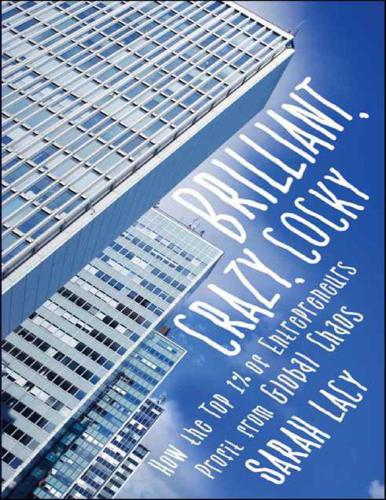
Brilliant, Crazy, Cocky: How the Top 1% of Entrepreneurs Profit From Global Chaos
by
Sarah Lacy
Published 6 Jan 2011
For seven years he’d been tel ing the world what a great opportunity genealogy was, al the while having to scrimp, save, and give up most of his equity to keep his company in business. Here came a guy who knew nothing about genealogy and had a brand-new site worth $100 mil ion? The company was two months old! How was that possible? It was possible, because it was Sacks, a wel -connected member of the so-cal ed PayPal mafia. The former founders and executives from PayPal had their fingerprints al over the burgeoning U.S. Web 2.0 movement. They had founded LinkedIn, Slide, Yelp, YouTube, and now Geni, and they had invested in Facebook, Digg, and others. Sacks had two big advantages—he knew how to turn the wonky academic science of genealogy into a sexy social Web application, and he knew how to play the venture game.
…
It was an argument Japhet could barely make sense of, much less make to potential investors. While Geni’s whopper of a deal did a lot to validate this market, Japhet and his investors could only think of one thing: the MetaCafe curse. The Israeli Web scene had seen this movie before, and this time the wel -funded U.S. competitor was from the PayPal mafia again! In the Web 2.0 world, better usability beats better technology— every time. And it was looking like Israelis just couldn’t cut it in this new design-centric world. If MyHeritage was going to make it, Japhet was going to have to figure out how to make an attractive, intuitive Web site—and fast.
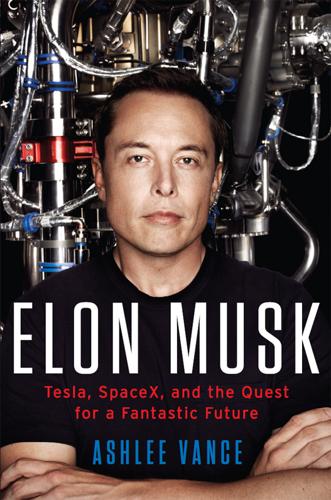
Elon Musk: Tesla, SpaceX, and the Quest for a Fantastic Future
by
Ashlee Vance
Published 18 May 2015
DEDICATION For Mum and Dad. Thanks for Everything. CONTENTS DEDICATION 1 ELON’S WORLD 2 AFRICA 3 CANADA 4 ELON’S FIRST START-UP 5 PAYPAL MAFIA BOSS 6 MICE IN SPACE PHOTOGRAPHIC INSERT 7 ALL ELECTRIC 8 PAIN, SUFFERING, AND SURVIVAL 9 LIFTOFF 10 THE REVENGE OF THE ELECTRIC CAR 11 THE UNIFIED FIELD THEORY OF ELON MUSK EPILOGUE APPENDIX 1 APPENDIX 2 APPENDIX 3 ACKNOWLEDGMENTS NOTES ABOUT THE AUTHOR ALSO BY ASHLEE VANCE CREDITS COPYRIGHT ABOUT THE PUBLISHER 1 ELON’S WORLD DO YOU THINK I’M INSANE?” This question came from Elon Musk near the very end of a long dinner we shared at a high-end seafood restaurant in Silicon Valley.
…
He had a decent idea, turned it into a real service, and came out of the dot-com tumult with cash in his pockets, which was better than what many of his compatriots could say. The process had been painful. Musk had yearned to be a leader, but the people around him struggled to see how Musk as the CEO could work. As far as Musk was concerned, they were all wrong, and he set out to prove his point with what would end up being even more dramatic results. 5 PAYPAL MAFIA BOSS THE SALE OF ZIP2 INFUSED ELON MUSK WITH A NEW BRAND OF CONFIDENCE. Much like the video-game characters he adored, Musk had leveled up. He had solved Silicon Valley and become what everyone at the time wanted to be—a dot-com millionaire. His next venture would need to live up to his rapidly inflating ambition.
…
Another set of people—including Reid Hoffman, Thiel, and Botha—emerged as some of the technology industry’s top investors. PayPal staff pioneered techniques in fighting online fraud that have formed the basis of software used by the CIA and FBI to track terrorists and of software used by the world’s largest banks to combat crime. This collection of super-bright employees has become known as the PayPal Mafia—more or less the current ruling class of Silicon Valley—and Musk is its most famous and successful member. Hindsight also continues to favor Musk’s unbridled vision over the more cautious pragmatism of executives at Zip2 and PayPal. Had it chased consumers as Musk urged, Zip2 may have ended up as a blockbuster mapping and review service.
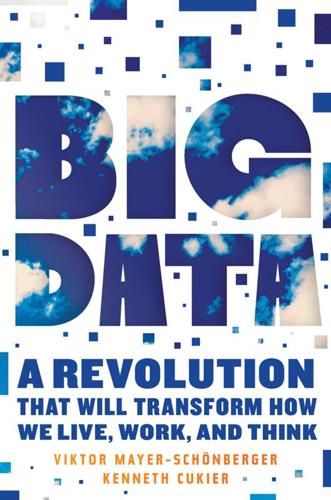
Big Data: A Revolution That Will Transform How We Live, Work, and Think
by
Viktor Mayer-Schonberger
and
Kenneth Cukier
Published 5 Mar 2013
Still, the archetypes are helpful as a way to appreciate the roles that different firms play. Today’s pioneers of big data often come from disparate backgrounds and cross-apply their data skills in a wide variety of areas. A new generation of angel investors and entrepreneurs is emerging, notably from among ex-Googlers and the so-called PayPal Mafia (the firm’s former leaders like Peter Thiel, Reid Hoffman, and Max Levchin). They, along with a handful of academic computer scientists, are some of the biggest backers of today’s data-infused startups. The creative vision of individuals and firms in the big data food-chain helps us reassess the worth of companies.
…
See also big data; data; information in European Union, [>] government and, [>]–[>] in Great Britain, [>] Obama on, [>] public nature of, [>]–[>], [>]–[>] World Bank and, [>] Open Data Institute, [>] Open Knowledge Foundation, [>] O’Reilly, Tim, [>] Orwell, George: 1984, [>], [>] Pacioli, Luca: and double-entry bookkeeping, [>]–[>] Page, Larry, [>] Palfrey, John, [>] Parise, Brian, [>] parole boards: use predictive analytics, [>] Pasteur, Louis: and rabies vaccine, [>]–[>] “PayPal Mafia,” [>] Pearl, Judea, [>] Pentland, Sandy, [>], [>] Physical Geography of the Sea, The (Maury), [>]–[>] Picasso, Pablo, [>] Pinterest, [>] police: use predictive analytics, [>], [>]–[>], [>] police state: East Germany as, [>], [>], [>] Power of Habit, The (Duhigg), [>]–[>] precision. See exactitude predictive analytics, [>], [>].
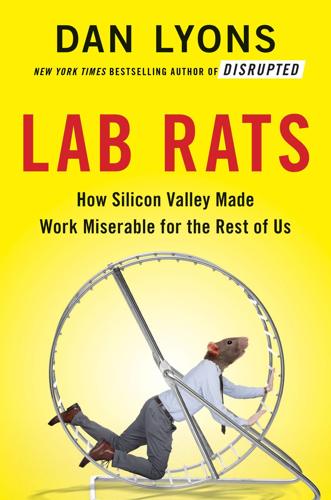
Lab Rats: How Silicon Valley Made Work Miserable for the Rest of Us
by
Dan Lyons
Published 22 Oct 2018
If they didn’t comply, the cops could seize their tents and belongings. The problem was that San Francisco had only nineteen hundred shelter beds, but four thousand people were living on the streets. Nevertheless, the proposition passed. In 2017, the cops started sweeping people off the streets. Ayn Rand and the PayPal Mafia One day in May 2018, the police in Laguna Beach, California, published a set of photographs from a car accident: a Tesla Model S sedan, operating in autopilot mode, had crossed the center line and smashed into a parked police SUV. The photos of the Laguna Beach crash seemed like a perfect metaphor for what the new Masters of the Universe are doing to society: turning loose a bunch of half-baked ideas to careen around and smash into things, all in the name of progress.
…
Tesla has been hit with numerous worker complaints and lawsuits, including three in 2017 by black workers who said they had been subjected to racist behavior and racist slurs. One complaint described Tesla’s factory as “a hotbed of racist behavior.” Musk made his first fortune as a co-founder of PayPal, whose alumni, known as the “PayPal Mafia,” have since founded other successful tech companies and/or become venture capitalists. Many of them have known each other since their student days at Stanford in the 1990s. In their current roles they exert outsize influence on the workplace culture of Silicon Valley. The problem is some of them don’t seem like the nicest people.
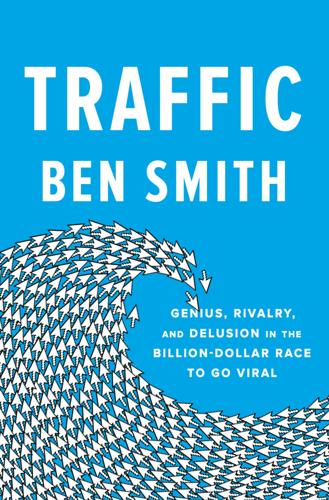
Traffic: Genius, Rivalry, and Delusion in the Billion-Dollar Race to Go Viral
by
Ben Smith
Published 2 May 2023
He was gay, too, and he and Nick had a similar preoccupation with the Valley’s quasi-closeted elite, gay men who didn’t think of themselves as famous enough that they had any public responsibility to be out, even as they led comfortable, openly gay private lives. The most important of these powerful, private Silicon Valley gay men was Peter Thiel, a standoffish Stanford graduate who in 1998 had co-founded the company that would become PayPal. The wave of money that company threw off created the “PayPal mafia”—a group of investors who seeded another wave of companies. They had real money to invest, even after the crash. Thiel had bet early on Facebook—he was Mark Zuckerberg’s first outside investor—and been rewarded massively. Thiel’s combination of power and intense privacy made him a perfect target for Nick Denton.
…
See also MIT Media Lab “matchmaking” events, 15–16 Mayer, Kevin, 196, 199–200 Mayer, Marissa, 64–65 McCain, John, 167, 248–49, 251 McCain Institute, 250 McCarthy, Megan, 85 McCollum, Ashley, 193 McEnroe, John, 28 McInnes, Gavin, 97, 139, 184, 290 McKinsey consulting firm, 225 McNeill, Caitlin, 209–10 “meaningful social interactions” metric, 272–75, 284 Media Matters, 191 Meier, Barry, 249, 258 memes and Bannon’s political activism, 117 and BuzzFeed’s competition, 196, 284 and BuzzFeed’s journalism, 280 and BuzzFeed’s news and social content, 151, 167 and BuzzFeed’s traffic sources, 123, 126–27, 153 and Contagious Media Showdown, 48–49 and Gionet, 295 and political campaigns, 254 and right-wing media, 186, 188, 192 and social engagement on Facebook, 276–77 and “the Dress” viral post, 210–11 Mensch, Louise, 255–56 Mercer, Robert, 177 Merkley, Jeff, 295 MetaFilter, 3 #MeToo movement, 100 Millard, Wenda Harris, 106, 169 Miller, Katherine, 194, 240 Miller, Zeke, 166 Mini Cooper, 47 misogyny, 143, 184 MIT Media Lab, 1–2, 8, 11, 47 mobile phones, 151, 262 Modi, Narendra, 243 Morales, Oscar, 179, 240 Moreover, 16–18, 20, 51, 138 Morgan Stanley, 120 Morin, Dave, 216 Moss, Kate, 57 Mosseri, Adam, 211 Movable Type software, 34 MoveOn.org, 180–81, 237 Moyers, Bill, 98 MSN, 196 MSNBC, 255–56 MTV, 73, 110, 127–28, 154–55, 269 Mucha, Zenia, 117 mullet strategy, 79–80 Murdoch, Rupert, 53, 56, 255, 272 mybarackobama.com, 111, 114 MySpace, 93, 111 N NAACP, 135 National Review, 167 National Rifle Association (NRA), 25–28, 129, 187 native advertising, 130, 266 NBC, 268–69, 279–80, 283, 301, 303 NBCUniversal, 238, 300 Negations, 7 nepotism, 283 netroots, 29 Netscape, 207 New Black Panther Party, 187 Newmark, Craig, 281 new Right, 41, 43 NewsBlogger, 16 News Feed (Facebook) and BuzzFeed’s news and social content, 160–62 and BuzzFeed’s traffic growth, 205 and BuzzFeed’s traffic sources, 152 and funding for Ratter, 216 and origin of social media politics, 115 and social engagement on Facebook, 273 and “the Dress” viral post, 211 and Upworthy, 182–83 NewsGuild, 282 Newsweek, 33, 70 New Yorker, 207, 249 New York magazine, 54, 181 New York Observer, 57, 156 New York Post, 86 New York Times and anti-NRA efforts, 28–29 and BuzzFeed’s influence, 186 and BuzzFeed’s layoffs, 280–82 and BuzzFeed’s SPAC deal, 301 and BuzzFeed’s traffic growth, 167 and changing media environment, 218 and coverage of Trump presidency, 269 and Denton’s wedding, 213–14 and Disney’s bid to buy BuzzFeed, 196 and Facebook’s dominance of social media, 270 and Facebook’s political content, 238 on Gawker scandals, 54 and news aggregation–distribution startups, 15 Peretti’s address to board, 218–20 and political blogs, 33 and revival of legacy media, 220–30 and shifting strategy at Huffington Post, 81 and social engagement on Facebook, 275–76 and social media politics, 115 and splintering of internet media, 298 and the Steele Dossier, 248–49, 255, 256 and traffic monitoring tools, 105 Wirecutter acquisition, 287 Nguyen, Dao, 192, 244, 267, 288 Nielsen ratings, 150 Nike, 2–4, 7–8, 10–11, 27, 149, 288, 300, 302 Nisenholtz, Martin, 222, 223 Nolan, Hamilton, 176 NowThisNews, 283 “Numa Numa Dance” (video), 72 O Obama, Barack and Breitbart’s political background, 43 and BuzzFeed’s traffic sources, 155–56 and Facebook’s influence, 152, 177 and Facebook’s political content, 240 and Harman’s investment in Huffington Post, 120 and Harman’s support, 118–19 and Huffington Post’s political content, 107–8 and Huffington Post’s traffic, 70, 116 Iger’s access to, 197 and Lerer’s political clout, 149 Obamacare, 158 and online political activism, 132, 134–35, 152 and Pariser’s background, 180 presidential campaign, 102–3, 106, 109–15 and right-wing media, 186, 191 and shape of today’s internet media, 304 and the Steele Dossier, 250 Tkacik’s support for, 94, 97 and Wonkette’s political content, 31 Ocasio-Cortez, Alexandria, 277, 284 Occupy Wall Street, 166 Ochs, Adolph, 222 Oddjack blog, 55–56 OkCupid, 149 O’Keefe, James, 133–34, 135 O’Malley, Martin, 168 One D at a Time (Egan), 92 One Million Voices Against FARC, 113, 131–32 The Onion, 180 Openbook, 206 O’Reilly, Bill, 135 Oxfeld, Jesse, 56 Ozy, 195, 284–85, 286, 299 P pac-manning, 81–82 Page, Larry, 64 Palihotel, 197 Palin, Sarah, 82 Paltrow, Gwyneth, 46 paparazzi, 141–42 Pariser, Eli, 179–81, 183, 237, 269 Parsons, Richard, 25 Paul, Ron, 166 Paulson, Hank, 118 PayPal mafia, 85 paywalls, 224–26, 229, 269 Peacock streaming platform, 300 Pelosi, Nancy, 277 Peretti, Chelsea, 24, 47, 49, 58–59 Peretti, Della, 4–5 Peretti, Jonah acquisition of HuffPost, 286–87 and Arianna Huffington’s influence, 34 arrival in New York, 10, 12 and author’s background, 157–64, 247 background and education, 1–9 bet with Marlow, 1, 9, 49, 302–3 and Breitbart’s death, 178–79 and Breitbart’s departure from Huffington Post, 131–32 and Breitbart’s political background, 43 and Breitbart’s role at Huffington Post, 40 and BuzzFeed’s labor tensions, 280–86 and BuzzFeed’s news and social content, 167–69 and BuzzFeed’s office leases, 204–5, 319n204 and BuzzFeed’s SPAC deal, 300–303, 324n302 and BuzzFeed’s traffic, 122–29, 152–54, 154–56, 203–8 and competition with Huffington Post, 67–77 and Contagious Media Showdown, 51 and Daulerio’s background, 139 and Denton’s arrival in New York, 18 and Denton’s parties, 52, 58, 59 and devaluation of traffic, 264–70 and Disney’s bid to buy BuzzFeed, 196–202 and early virality projects, 24–29 and Facebook’s political content, 237–38, 244–45 and Gionet, 292 and Huffington Post’s investors, 116–18, 120 and Huffington Post’s launch, 44–50 and Huffington Post’s political content, 313n102 and Huffington Post’s strategy, 78–82 and launch of Upworthy, 180–83 meeting with New York Times board, 219–20, 222 and New York blogging scene, 21 Nike sweatshop email prank, 2–4, 7–8, 10–11, 27, 302 and political engagement, 102–8 and product marketing, 287–89 and revival of legacy media, 230 and right-wing media, 185, 191, 290 and rise of New York tech companies, 61–62 rivalry with Denton, 170–72, 177, 206, 315n126 and sale of Huffington Post, 147–51 and social engagement on Facebook, 272–74 and social media politics, 111 and the Steele Dossier, 248, 258 and “the Dress” viral post, 210–11 and venture capital investments, 213 and Zuckerberg’s purchase offer for BuzzFeed, 160–62, 165 Perpich, David, 220–27, 229–30 Perry, Rick, 158, 160 PETA, 153 Petraeus, David, 180 PewDiePie, 201 Philadelphia magazine, 138 photoshopping (photo retouching), 93 Pinterest, 182, 267, 269 Pitney, Nico, 159 plagiarism, 187, 193–94 Politico, 156, 158, 165, 180, 246 Pollak, Joel, 145 Poochareon, Ann, 47–48 Poole, Chris (“moot”), 117, 126–27, 290 populism, 166, 191, 238, 240, 243, 255, 302, 304 pornography, 57, 97–98.
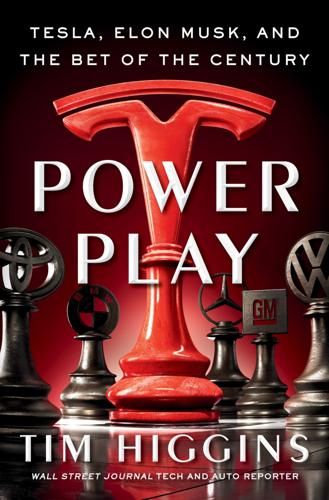
Power Play: Tesla, Elon Musk, and the Bet of the Century
by
Tim Higgins
Published 2 Aug 2021
What about converting the sports car: Emails reviewed by author. They had run the numbers: Review of Tesla Motor Inc.’s “Confidential Business Plan,” dated Feb. 19, 2004. “Convince me you know”: Author interviews with people familiar with the talks. Musk had been kicked: Jeffrey M. O’Brien, “The PayPal Mafia,” Fortune (Nov. 13, 2007), https://fortune.com/2007/11/13/paypal-mafia/. CHAPTER 3 While the EV1 motors: Author interviews with early Tesla employees. He’d later learn: Author interviews with multiple former Tesla employees familiar with the matter. In 2004 and 2005: Damon Darlin, “Apple Recalls 1.8 Million Laptop Batteries,” New York Times (Aug. 24, 2006), https://www.nytimes.com/2006/08/24/technology/23cnd-apple.html.
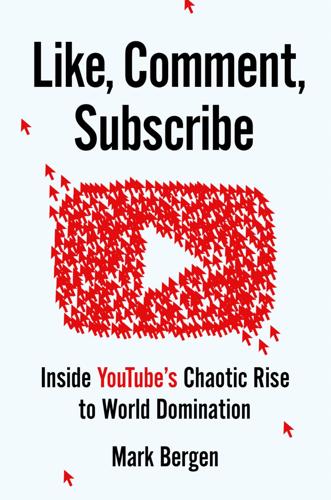
Like, Comment, Subscribe: Inside YouTube's Chaotic Rise to World Domination
by
Mark Bergen
Published 5 Sep 2022
Emerging from the rubble, PayPal went public and, in 2002, sold itself to the auction site eBay. PayPal’s early staff were a tight-knit group of type A overachievers, and after the eBay purchase several of them went on to join blue-chip investment firms and start marquee companies: Yelp, LinkedIn, SpaceX. The press would christen this cadre (of mostly men) “the PayPal Mafia.” At PayPal, the YouTube founders had a reputation as more of the B team. Hurley had left soon after the eBay acquisition, chafing at its stuffy corporate culture. Chen worked on PayPal’s expansion into China but grew to hate the culture too, believing that it valued financial gain over programming gusto.
…
Those close to Wojcicki knew she had been restless and itching for a loftier executive role, like many of her peers had. By 2014 her conflict with the ads engineer Ramaswamy felt untenable. Wojcicki held private talks to join Tesla as a chief operating officer, number two under Elon Musk, an old PayPal Mafia member. But Page wanted her to stay. He knew Kamangar wanted out. And by then, Page had begun plotting his own exit—a plan to hand Google off to a trusted deputy, Sundar Pichai. In a conversation, Laszlo Bock, Page’s HR chief, suggested Page could more easily clear the way for his chosen successor by moving Wojcicki to YouTube.
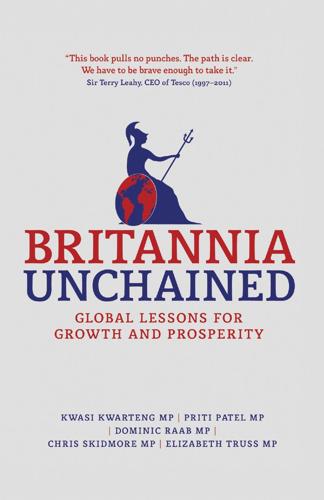
Britannia Unchained: Global Lessons for Growth and Prosperity
by
Kwasi Kwarteng
,
Priti Patel
,
Dominic Raab
,
Chris Skidmore
and
Elizabeth Truss
Published 12 Sep 2012
It is not just venture capital funds that take risks on investing outside of traditional banking structures. Successful founders often invest their newfound wealth into the next generation of start-ups, combining mentorship and money in a new role as an angel investor. Members of the so-called ‘PayPal Mafia’ have gone on to invest in YouTube, Facebook, LinkedIn, SpaceX, Zynga and Flickr, among many, many others. A similar model seems to be emerging in Wenzhou, China, home to 140,000 companies, and considered the home of Chinese enterprise culture. Small businesses frequently found themselves struggling to find loans from Chinese banks, who prefer to lend to the larger state-backed enterprises that typify the Chinese model of capitalism.39 So instead, entrepreneurs in Wenzhou turned to each other for loans to grow their businesses, building a thriving market for private credit, providing credit in places where state enterprise would otherwise suffocate small and medium enterprises.
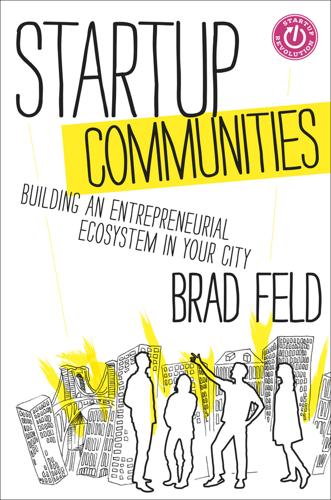
Startup Communities: Building an Entrepreneurial Ecosystem in Your City
by
Brad Feld
Published 8 Oct 2012
Although some communities have factions, over time the short-term benefit of the factions are often outweighed by porous boundaries. If you study places like Silicon Valley, you see a continual shift of people from one subset of the community to another, and, for some reason, these subsets have come to be called “mafias.” At moments in time you might have a Yahoo! mafia, PayPal mafia, a Google mafia, or a Facebook mafia. Although the members of each mafia share a common set of experiences, they also co-mingle as new companies are created and subsequently acquired by other companies. Although the personal relationships may have short-term complexities, the participants who take a longer view, who embrace their specific mafia, but also encourage and participate in porous boundaries between these mafias, end up playing the best long-term game.
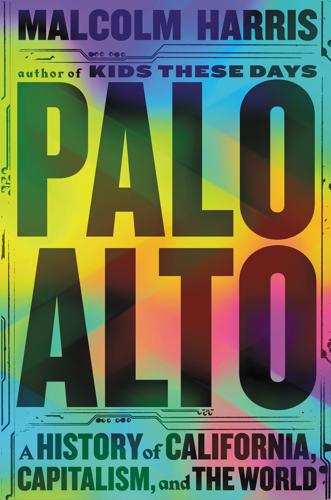
Palo Alto: A History of California, Capitalism, and the World
by
Malcolm Harris
Published 14 Feb 2023
Curry not only works for Silicon Valley capitalists but has come to represent the Silicon Valley mindset, the way Tiger Woods once did. See Erik Malinowski, Betaball: How Silicon Valley and Science Built One of the Greatest Basketball Teams in History (Atria Books, 2017). Chapter 5.3 Blister in the Sun The PayPal Mafia and the Facebook Keiretsu—Immiseration 2.0—Google Bus—Roko’s Basilisk—Living in the Thielverse It’s difficult to narrativize the latest phase of Silicon Valley history. From at least the time of Aristotle’s original outline in the Poetics, narratives have had a rising and falling action. We have the exposition, then conflicts build, peak, and resolve.
…
PayPal had a successful IPO in 2002 and was acquired by eBay the same year for $1.4 billion in stock.45 Thiel’s share was a bit over $50 million, while Musk, since he had been ahead at the time of merger, took home just under $165 million. All for only a few years of work. The eBay purchase was the beginning of the PayPal Mafia, a substantial number of whom were members of Thiel’s Stanford Review crew. PayPal’s millionaires spun off a series of start-ups that rivaled the Fairchildren in economic significance if not technical achievement: Steve Chen, Chad Hurley, and Jawed Karim sold YouTube to Google in 2006 for $1.65 billion; Russel Simmons and Jeremy Stoppelman almost sold Yelp to Yahoo!
…
Once they were in place, not even the high tide of social democratic reformism could dissolve those bonds, and they helped return Hooverism to power. Though Thiel hasn’t had a presidency of his own to work with—no chance of that for the Frankfurt-born billionaire without a constitutional amendment—he has managed a similar feat with the PayPal Mafia and the Thielverse. As American power shifted toward the private sector and, within the private sector, toward Silicon Valley’s fast-growing tech companies, his networks acquired outsize importance, and his war chest ballooned. Founders Fund was open about investing in people, and Thiel took a position at Paul Graham’s incubator Y Combinator to access ambitious new CEOs at their earliest phase of development.
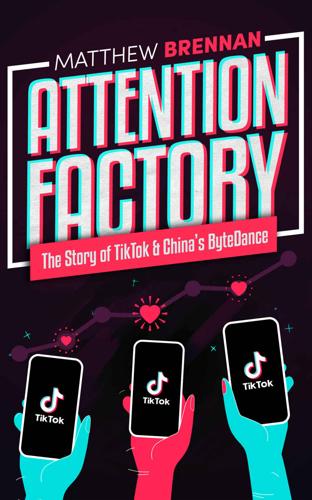
Attention Factory: The Story of TikTok and China's ByteDance
by
Matthew Brennan
Published 9 Oct 2020
At its peak, the company employed just 170 people, yet over thirty of those staff members went on to become active entrepreneurs starting their own internet companies. 25 Yiming would become the most prominent member of the “Kuxun entrepreneurship gang,” a term that echoed Silicon Valley’s famous “PayPal mafia.” The Kuxun co-founder Chen Hua had ambitions of competing with search giant Baidu in the race to become “the Google of China.” Yet Baidu, by this time, was already invincible, having defended its market share from Google, who later voluntarily 26 left the market, gifting its former rival a near-monopoly in Chinese language search.
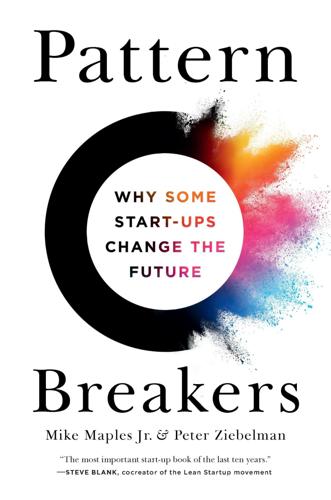
Pattern Breakers: Why Some Start-Ups Change the Future
by
Mike Maples
and
Peter Ziebelman
Published 8 Jul 2024
They should—because hiring is a matter of your start-up’s life or death. I believe the best founders devote 15 to 20 percent of their time to hiring, whether they have openings or not. Keith Rabois played a crucial role in defining and implementing PayPal’s government relations and dealing with regulatory issues. Keith is a well-known alumnus of the renowned “PayPal Mafia,” a group of former PayPal employees who went on to establish and develop many influential technology companies and investment firms after leaving PayPal. Since his PayPal days he has also played key roles at LinkedIn, Slide, and Square and is now a partner at the venture capital firm Khosla Partners.
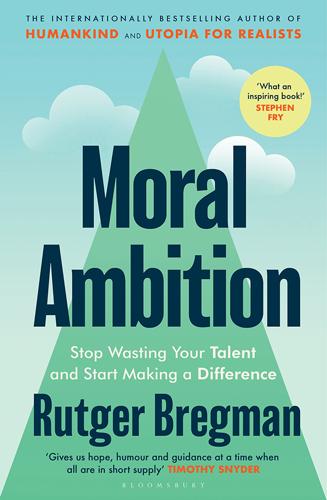
Moral Ambition: Stop Wasting Your Talent and Start Making a Difference
by
Bregman, Rutger
Published 9 Mar 2025
Next, he set out to find the most promising ‘cults’ in Silicon Valley, or the most obsessive and fanatic startup founders. You could say the search went alright: Thiel was the first outside investor in Facebook and grew into perhaps the most influential venture capitalist in Silicon Valley.10 What’s more, he became the godfather of the ‘PayPal Mafia’ – a small group of entrepreneurs who were involved with payment platform PayPal and went on to set up immensely successful businesses like Tesla and SpaceX (Elon Musk), LinkedIn (Reid Hoffman), and YouTube (Steve Chen, Chad Hurley, and Jawed Karim). A photographer from Fortune magazine made a group portrait of the men, dressed as mobsters.
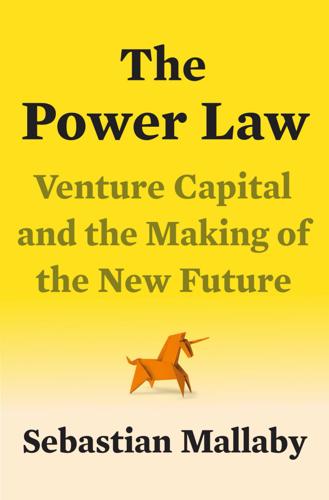
The Power Law: Venture Capital and the Making of the New Future
by
Sebastian Mallaby
Published 1 Feb 2022
Kathy Xu spent four hours with the entrepreneur Richard Liu, offered $10 million for 40 percent of his startup, and escorted him to her office to sign the deal before he could meet other investors. With her help, Liu built JD.com into a top e-commerce player and a member of the Fortune Global 500. Born and educated in China, Xu’s success signaled the indigenization of Chinese venture capital. PayPal alumni grew so powerful that they came to be known as the PayPal Mafia. In this mock-mobster photo, from left to right, top to bottom: Jawed Karim, cofounder of YouTube; Jeremy Stoppelman, cofounder of Yelp; Andrew McCormack, a member of the founding team at Thiel’s hedge fund, Clarium Capital; Premal Shah, cofounder of Kiva; Luke Nosek and Ken Howery, early partners at Thiel’s venture firm, Founders Fund; David Sacks, founder of Yammer; Thiel; Keith Rabois, a senior executive at LinkedIn and Square and later a venture capitalist; Reid Hoffman, cofounder of LinkedIn; Max Levchin, cofounder of Affirm; Roelof Botha, a top investor at Sequoia; and Russel Simmons, Stoppelman’s cofounder at Yelp.
…
Moritz is pictured here, in blue, with fellow Welshman and Tour de France victor Geraint Thomas (left photo, right). Jim Goetz (left photo, right) and Roelof Botha (right photo) helped to lead Sequoia after Moritz retired from management. Goetz introduced Accel’s “prepared-mind” thinking to the partnership and backed WhatsApp, one of Sequoia’s most lucrative investments. Botha, a member of the PayPal Mafia, applied lessons from behavioral science to Sequoia’s decision process. Goetz is pictured here with the WhatsApp founders Jan Koum (left photo, center) and Brian Acton (left photo, left) in front of the welfare office where Koum had once stood in line to receive food stamps. As tech firms delayed IPOs, they achieved “unicorn” status: their valuations shot past the $1 billion mark, even as they remained private.
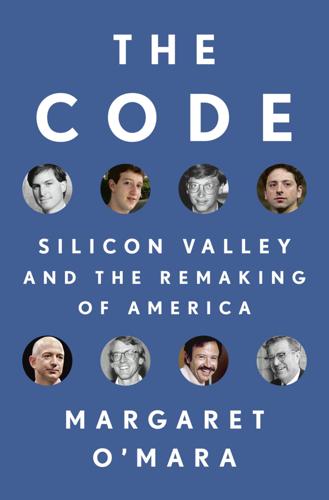
The Code: Silicon Valley and the Remaking of America
by
Margaret O'Mara
Published 8 Jul 2019
They did not do so as individuals, however, but as an immensely powerful network of men Thiel had brought together in his many years at the Review and who, armed with their Stanford degrees and their well-worn copies of Ayn Rand, set out together to remake the brave new world of the Valley’s Internet economy. Within a decade, the core group would be multimillionaires known as the PayPal Mafia, after the online-payment company they founded was sold to eBay for $1.5 billion in 2002. Nearly all went on to found and invest in other major tech hits. Stanford’s campus wars burned hot for only a few years, but they had lasting resonance. For the young people zooming on their bicycles through the sun-dappled quads in the late 1980s and early 1990s were the same people who would found and build some of the richest and most influential companies of the Valley’s late 1990s and 2000s.
…
They picked winners, and because of the accumulated experience and connections in the Valley, those they picked often won.24 Keeping the networks tight and personal was a critical part of Silicon Valley’s ability to keep the flywheel turning, to move from chips to micros to dot-com to the next Web without dropping the pace. VC had always been a men’s world, but the post-2000 elite—with its overrepresentation from the overwhelmingly male worlds of Google, Facebook, and the enterprises founded by the PayPal Mafia—was even more so. The business of entrepreneurship and VC took place not only in boardrooms and cubicles but over beers and peanuts at Antonio’s Nut House, breakfast at Hobee’s or Buck’s, late-night coding sessions and poker games, on forty-mile bicycle rides along Skyline Drive. It was a wonderful world if you were in it, and a tough place to hack into if you didn’t have the time, the money, the poker skills, or the $10,000 bike.
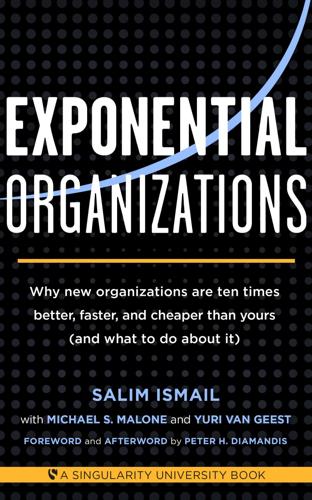
Exponential Organizations: Why New Organizations Are Ten Times Better, Faster, and Cheaper Than Yours (And What to Do About It)
by
Salim Ismail
and
Yuri van Geest
Published 17 Oct 2014
Peter Thiel told his co-founders (Elon Musk, Reid Hoffman, Luke Nosek, Max Levchin and Chad Hurley) and employees that they all should work together as friends rather than more formally as employees. Looking back, perhaps friendship was PayPal’s MTP. Not only was PayPal very successful as a company—it was sold to eBay for $1.2 billion—but the friendships that grew out of it were equally successful. The original team is now known as the “PayPal Mafia,” and its members have helped one another on subsequent startups, including Tesla, YouTube, SpaceX, LinkedIn, Yelp, Yammer and Palantir—companies that today have a total market cap of more than $60 billion. The pace of growth of an ExO requires an extra emphasis on a fully synergistic core team.
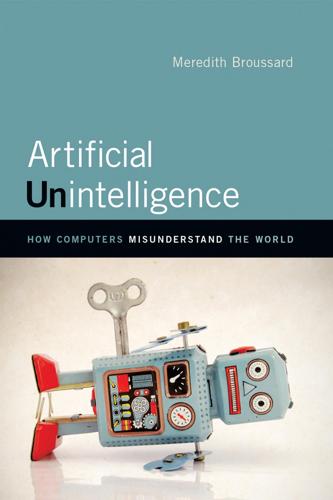
Artificial Unintelligence: How Computers Misunderstand the World
by
Meredith Broussard
Published 19 Apr 2018
Like Barlow, Thiel conceives of cyberspace as a stateless country: “Because there are no truly free places left in our world, I suspect that the mode for escape must involve some sort of new and hitherto untried process that leads us to some undiscovered country; and for this reason I have focused my efforts on new technologies that may create a new space for freedom.”22 Thiel was a supporter of and advisor to Donald Trump’s presidential campaign and funded a lawsuit that took down Gawker. In the book Move Fast and Break Things, Annenberg Innovation Lab director emeritus Jonathan Taplin explores the way that Thiel’s influence has spread throughout Silicon Valley via his “Paypal Mafia,” other venture capitalists and executives who have adopted his anarcho-capitalist philosophy.23 The question of why wealthy people like Thiel are taken seriously about seasteading or aliens has been addressed by cognitive scientists. Paul Slovic, an expert in risk assessment, writes that we have cognitive fallacies related to expertise.
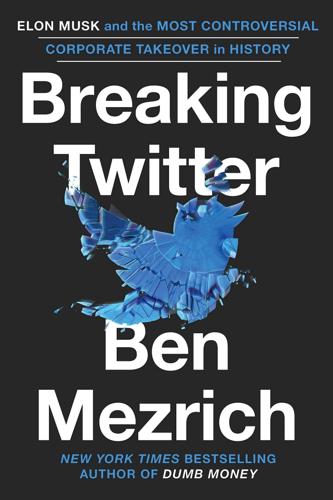
Breaking Twitter: Elon Musk and the Most Controversial Corporate Takeover in History
by
Ben Mezrich
Published 6 Nov 2023
No doubt these were bodyguards, at least they damn sure didn’t look like engineers, and they had taken up posts on either side of the door leading into the conference room. In front of the bodyguards gathered a smattering of strangers, though Esther did recognize a couple of the faces; specifically, David Sacks, the celebrity VC and official “Friend of Elon” who had gone from being the COO of PayPal and a member of the so-called “PayPal Mafia” to becoming one of the most prolific Silicon Valley investors, through his venture firm Craft Ventures. Sacks currently cohosted a podcast called All In and had been publicly egging Elon on in his takeover bid for Twitter since the spring. Although Esther didn’t see Sacks’s All In cohost Jason Calacanis, she assumed he would be somewhere nearby.
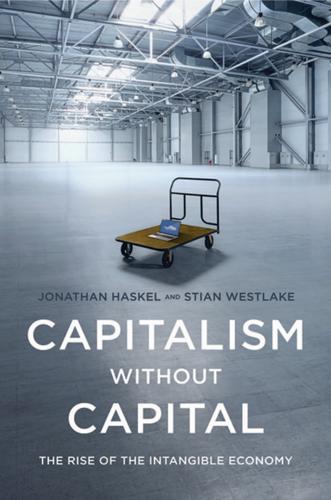
Capitalism Without Capital: The Rise of the Intangible Economy
by
Jonathan Haskel
and
Stian Westlake
Published 7 Nov 2017
Indeed, a significant part of the strategy of intangible-rich companies is combining and managing their intangibles in such a way as to minimize the spillovers and maximize the benefits they get from them. Someone who is unusually honest about the lengths businesses go to in order to stop others benefiting from their lovingly created intangibles is venture capitalist and entrepreneur Peter Thiel, the so-called don of Silicon Valley’s PayPal Mafia. Thiel’s refreshingly candid book on entrepreneurship Zero to One makes it clear that the way to create very valuable start-ups is to create businesses that, as far as possible, have monopoly positions in big markets. In Thiel’s management philosophy, you create these defensible opportunities by investing in the right sorts of software, marketing, and networks of customers and suppliers (three classic intangibles) and by bringing them together in ways that competitors find hard to copy.
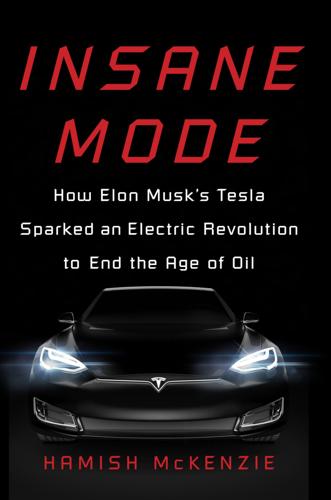
Insane Mode: How Elon Musk's Tesla Sparked an Electric Revolution to End the Age of Oil
by
Hamish McKenzie
Published 30 Sep 2017
Part of the value of an innovation cluster like Silicon Valley lies in the dispersal of intellectual labor from one node to the next. For instance, PayPal is well known in the Valley for producing a number of high performers who left the company to start, join, or invest in others. The so-called PayPal Mafia includes Reid Hoffman, who founded LinkedIn; Max Levchin, whose most recent of several start-ups is the financial services company Affirm; Peter Thiel, a Facebook board member and President Trump–supporting venture capitalist who cofounded “big data” company Palantir; Jeremy Stoppelman, who started reviews site Yelp; Keith Rabois, who was chief operating officer at Square and then joined Khosla Ventures; David Sacks, who sold Yammer to Microsoft for $1.2 billion and later became CEO at Zenefits; Jawed Karim, who cofounded YouTube; and one Elon Musk.
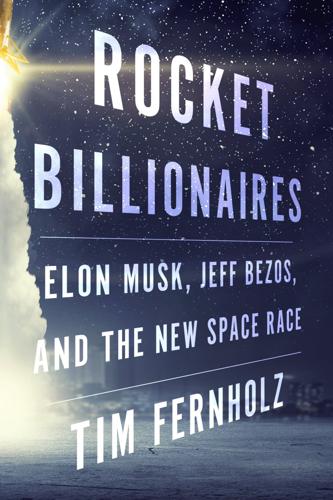
Rocket Billionaires: Elon Musk, Jeff Bezos, and the New Space Race
by
Tim Fernholz
Published 20 Mar 2018
There could be a virtuous cycle: if the cost of space access fell enough to make new businesses possible in orbit, there would be more money to invest in lowering the cost to access space. It was an attitude he had developed as an entrepreneur in the early days of the internet boom. Not many had thought that a new way of paying for goods and services on the internet was necessary in 1999. But Musk and the other members of the so-called PayPal Mafia—many of whom, like the investors Peter Thiel and Luke Nosek, would also back SpaceX—were not deterred. Once they had built their simple tool for exchanging money safely over the emerging consumer web, other entrepreneurs found ways to use it. The ability to exchange money online became the basis for a whole new economy.
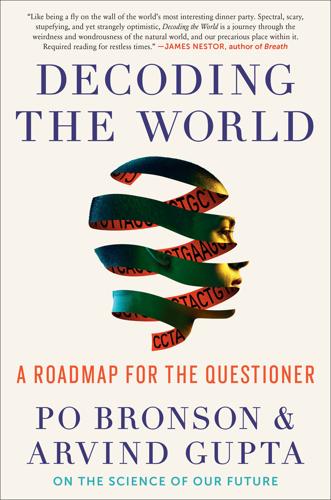
Decoding the World: A Roadmap for the Questioner
by
Po Bronson
Published 14 Jul 2020
While we follow on and invest millions in our companies, they would need hundreds of millions of dollars to deliver their promise. To generate interest we gave (and still give) tours of our lab where VCs can see where and how this future protein is made. In the end, chickens did better than rhinos. Scott Banister, PayPal mafia member and Uber seed investor, wrote a check for Clara Foods. Scott is a vegan. So were the Partovi twins who coinvested with Scott. Soon after that, Google Ventures and Ingredion invested tens of millions of dollars into Clara to help it scale. As of writing, the company is worth more than $125 million, four years after they made their first meringues in our tiny lab.
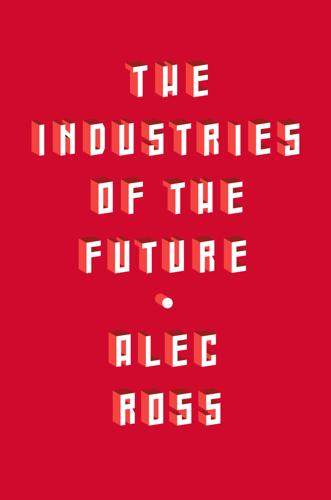
The Industries of the Future
by
Alec Ross
Published 2 Feb 2016
Home for me isn’t a place but rather a feeling—a feeling best felt when near family or with close friends.” Today Sheel is the youngest venture capitalist with a senior role at a major Silicon Valley venture capital firm. His brother, Sujay, matriculated at Harvard as a 15-year-old and stayed for five semesters before accepting a Thiel Fellowship. The fellowship, set up by PayPal Mafia alum Peter Thiel, gives young college students $100,000 to drop out of college and focus on entrepreneurship. Sujay moved out west and became the chief operating officer of Hired.com (an online marketplace where companies compete for engineering talent) and a vice president at a mobile entertainment network.
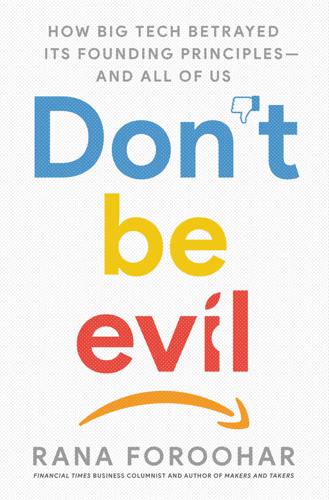
Don't Be Evil: How Big Tech Betrayed Its Founding Principles--And All of US
by
Rana Foroohar
Published 5 Nov 2019
I’m not denying that venture capital is often a necessary ingredient for innovation, or that it hasn’t enabled or supported the existence of many worthy enterprises that contribute positively to society and enhance all of our lives. But any time you have a group that is held so high on a pedestal—and swimming in so much wealth—it’s inevitable that at least a portion of those individuals are going to end up developing a bit of a God complex. Consider someone like Peter Thiel, one of the infamous “PayPal Mafia,” and among the first seed investors in Facebook, who went on to launch Palantir and the prominent VC firm Founders Fund. Thiel is a Trump supporter and libertarian who is critical of government and even education: Each year, he famously offers hundreds of thousands of dollars to encourage students to drop out of college and start companies instead.
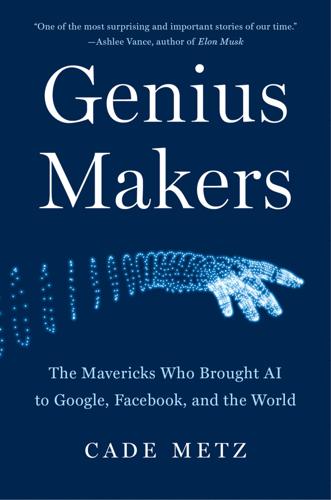
Genius Makers: The Mavericks Who Brought A. I. To Google, Facebook, and the World
by
Cade Metz
Published 15 Mar 2021
In the end, the system played with a speed and precision beyond any human. Shortly after Mnih and his team built this system, DeepMind sent a video to the company’s investors at the Founders Fund, including a man named Luke Nosek. Alongside Peter Thiel and Elon Musk, Nosek had originally risen to prominence as part of the team that created PayPal—the so-called “PayPal Mafia.” Soon after receiving the video of DeepMind’s Atari-playing AI, as Nosek later told a colleague, he was on a private plane with Musk, and as they watched the video and discussed DeepMind, they were overheard by another Silicon Valley billionaire who happened to be on the flight: Larry Page. This was how Page learned about DeepMind, sparking a courtship that would culminate in the Gulfstream flight to London.
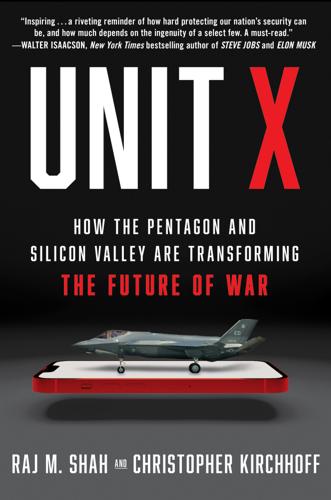
Unit X: How the Pentagon and Silicon Valley Are Transforming the Future of War
by
Raj M. Shah
and
Christopher Kirchhoff
Published 8 Jul 2024
The legal maneuvers were aimed at breaking apart the oligopoly held by traditional government suppliers. Thiel is an interesting and controversial figure. Born in Germany, raised in South Africa and then California, he studied philosophy at Stanford before earning a law degree from Stanford Law School. In 1998, Thiel helped found PayPal and became part of the so-called “PayPal Mafia,” a group of influential figures that included Elon Musk, another South African and the leader of Tesla, SpaceX, and other startups, and Reid Hoffman, who’d go on to found LinkedIn and become a prominent venture capitalist. Thiel used the money he made from PayPal to launch a career as an investor, scoring his first major hit as one of the earliest investors in Facebook, as famously depicted in the Aaron Sorkin film The Social Network.
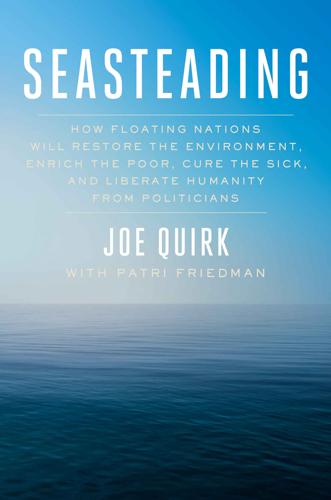
Seasteading: How Floating Nations Will Restore the Environment, Enrich the Poor, Cure the Sick, and Liberate Humanity From Politicians
by
Joe Quirk
and
Patri Friedman
Published 21 Mar 2017
The “Midas touch investor” has also earned a reputation as kingmaker. Fortune magazine reported: “Among students of business, PayPal may be known less for its own success than for the subsequent achievements of the people Thiel helped attract to build it. Those [thirteen] individuals, now known as the PayPal mafia, went on to launch a raft of companies that have become household names, including at least seven now valued at more than $1 billion.” Those seven would be Tesla Motors, SpaceX, Palantir, LinkedIn, Yammer, YouTube, and Yelp. Peter is perpetually preoccupied with how humanity is going to solve global challenges.
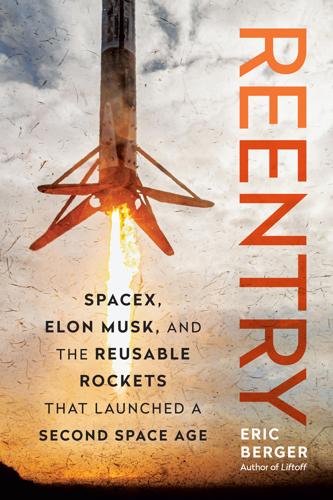
Reentry: SpaceX, Elon Musk, and the Reusable Rockets That Launched a Second Space Age
by
Eric Berger
Published 23 Sep 2024
Musk did not attend every launch, but this flight was critical to the future of his rocket company. He had been nervous about the flight, too, staying up all night. Inside the SpaceX control center, he stood cloistered with some of his friends from his days with the PayPal venture, a group informally known as the “PayPal Mafia.” Desch asked someone with SpaceX whether Musk might be willing to come by the post-launch celebration that afternoon at a nearby winery. He was told that Iridium was SpaceX’s most important commercial customer, and Musk would likely do almost anything at the moment. When Desch asked Musk, his reply was simply, “Now?”
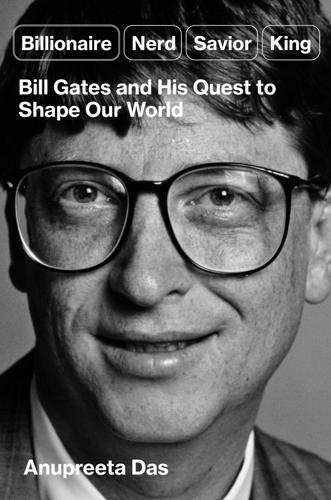
Billionaire, Nerd, Savior, King: Bill Gates and His Quest to Shape Our World
by
Anupreeta Das
Published 12 Aug 2024
Hoffman is among those who have weighed repeatedly on the power of networks. He introduced Thiel, one of the founders of PayPal, to Zuckerberg when the Facebook cofounder was looking for funding for his social media start-up. Hoffman and Thiel met as sophomores at Stanford, and famously are part of the “PayPal mafia” that includes Musk. Thiel made more than a billion dollars off his $500,000 investment in Facebook. Underlying all this is a quality of “maleness,” a nebulous concept but a helpful one because it captures the structural and institutional setup of the technology industry. As opposed to masculinity, which traditionally describes certain physical and social traits such as strength, vigor, muscularity, and assertiveness, maleness evokes an atmosphere—of comradery, of brothers-in-arms—where the scent of sweat and the fuel of testosterone propel people, and where bonding happens over coding, belching, and flatulence.
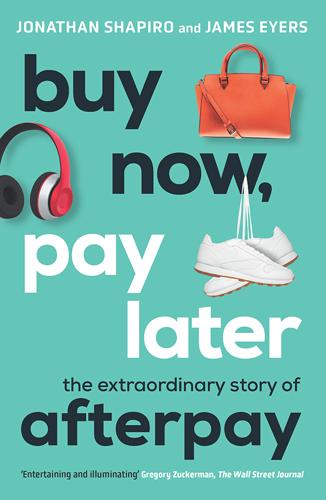
Buy Now, Pay Later: The Extraordinary Story of Afterpay
by
Jonathan Shapiro
and
James Eyers
Published 2 Aug 2021
That’s because he believed ICM’s shares may have been made available to hedge funds to borrow—and when those shares were sold by the original owner, they had to be returned, forcing the short-sellers to close their position. Finally, Letts made a comparison to another company that had been involved in a seemingly eternal tussle with hedge funds and had elicited emotions that professional share-market traders are trained to suppress: Elon Musk’s Tesla Motors. Musk, along with Peter Thiel, belonged to the ‘PayPal mafia’, having founded the groundbreaking payments company to solve the problem of the lack of trust between two strangers transacting online. Musk had taken his fortune and rolled the dice on what his disciples believed were humanity-altering ventures: launching cheap rockets into space, and accelerating the use of electric cars by building models that people actually wanted to drive.
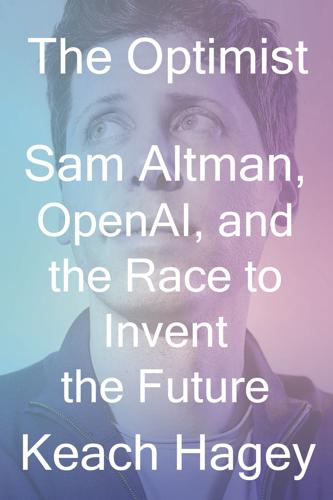
The Optimist: Sam Altman, OpenAI, and the Race to Invent the Future
by
Keach Hagey
Published 19 May 2025
And we’re going to build out, and duplicate, and we’re realizing that this AI thing is real. It could be really bad, but really big and important, and we’ve got to be sure that we’re safe, and we’ve got to do something good about it.” (While Musk’s Starlink has a presence in New Zealand, it was likely Musk’s fellow PayPal Mafia member Thiel, who has a place in New Zealand, whom Altman was talking about.) The same month that Altman posted his essay calling for the regulation of AI, he reached out to Musk to help him draft an open letter to the government calling for the same. Musk agreed, and they worked on drafts together of a letter that was ultimately released later in 2015.
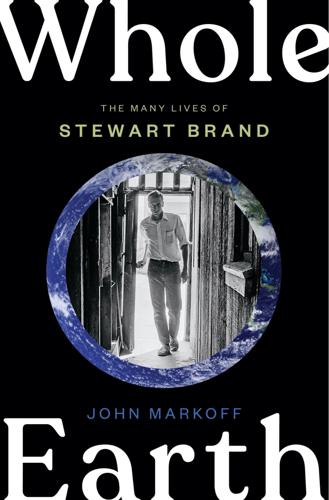
Whole Earth: The Many Lives of Stewart Brand
by
John Markoff
Published 22 Mar 2022
They also failed to make the distinction—made later by Jonathan Taplin in his 2017 book, Move Fast and Break Things: How Facebook, Google, and Amazon Cornered Culture and Undermined Democracy—between Brand’s original technological utopianism and Silicon Valley–centered digital libertarianism that emerged with a group of Stanford-educated young Turks known as the PayPal Mafia during the dot-com era. In Whole Earth Discipline, Brand made a decidedly non-neoliberal argument: “The scale of the climate challenge is so vast that it cannot be met solely by grassroots groups and corporations, no matter how Green. The situation requires Government fiat to set rules and enforce them.”[13] Brand retained a passionate commitment to the ideas of Aldo Leopold, an author, a philosopher, and an ecologist who is generally seen as the father of the science of wildlife management.
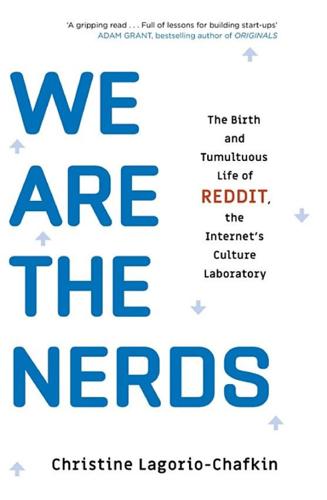
We Are the Nerds: The Birth and Tumultuous Life of Reddit, the Internet's Culture Laboratory
by
Christine Lagorio-Chafkin
Published 1 Oct 2018
“So it was like, ‘All right, technically I could lead a company about this size.’” His attitude read as humility, due perhaps to Wong’s credentials: He was basically Silicon Valley royalty. Facebook engineers were becoming well respected, and on top of that, Wong was a member of the so-called PayPal Mafia, the exclusive club of PayPal employees who became legends not just for constructing that payments infrastructure, but also for what they’d gone on to accomplish; Wong’s former coworkers had founded Palantir, LinkedIn, Yelp, Yammer, YouTube, Tesla Motors, and SpaceX. Others had become venture capitalists who invested in their former colleagues’ companies, along with Facebook and Zynga.
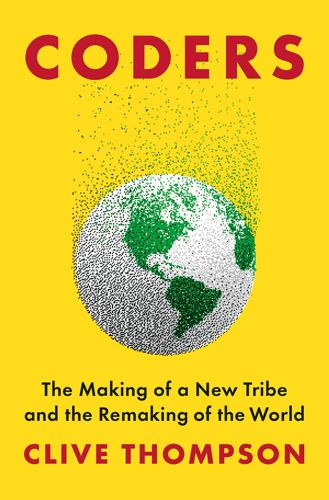
Coders: The Making of a New Tribe and the Remaking of the World
by
Clive Thompson
Published 26 Mar 2019
Consider the case of PayPal: It was, quite genuinely, an example of smart and relentless work by people like Levchin and his gang of sharp and intense developers, designers, and marketers. After all, plenty of other payment systems failed. PayPal plugged on. The early hires wound up rich and influential; the company minted what’s known as the “PayPal Mafia,” a group of millionaires who became even wealthier and more influential as they invested in the next generation of tech firms, like Facebook and Uber. But as Emily Chang, the author of Brotopia, points out, PayPal—like many of those early start-ups—was hardly the pure meritocracy many of its founders claimed it to be.
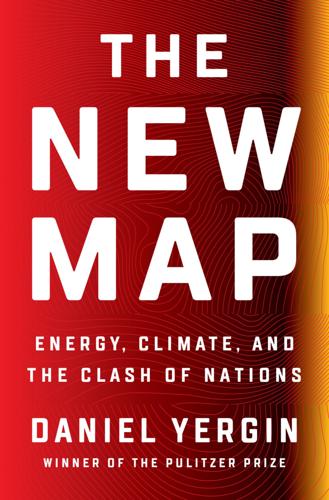
The New Map: Energy, Climate, and the Clash of Nations
by
Daniel Yergin
Published 14 Sep 2020
ROADMAP Chapter 37 THE ELECTRIC CHARGE The lunch in a Los Angeles seafood restaurant in 2003 was not going well. Two engineers, J. B. Straubel and Harold Rosen, were pitching Elon Musk. An entrepreneur of iron-man determination, Musk was already known as one of the original members of the “PayPal Mafia,” who had launched the online payment system, and then as the founder of SpaceX, which was aiming to undercut the government’s cost for space transportation and pave the interplanetary path for travel to Mars. The engineers were pitching Musk on something that would operate at a lower altitude—an electric airplane.
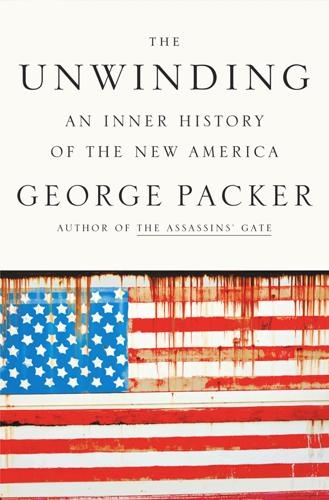
The Unwinding: An Inner History of the New America
by
George Packer
Published 4 Mar 2014
In 2002, PayPal became the method of payment for more than half of eBay’s auction customers, and after doing everything possible to create a more successful alternative, eBay purchased PayPal in October for $1.5 billion. Thiel quit the same day, walking away with $55 million on his $240,000 investment. What came to be called the PayPal mafia went on to found a lot of successful companies: YouTube, LinkedIn, Tesla Motors, SpaceX, Yelp, Yammer, Slide … Thiel moved out of his one-bedroom apartment in Palo Alto to a condo in the Four Seasons Hotel in San Francisco. Within a week of leaving PayPal, he started a new fund called Clarium Capital Management.
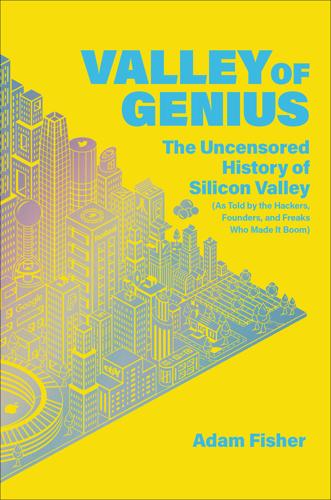
Valley of Genius: The Uncensored History of Silicon Valley (As Told by the Hackers, Founders, and Freaks Who Made It Boom)
by
Adam Fisher
Published 9 Jul 2018
Turing Award—and is one of the few without a PhD to have ever received it. Thacker died in 2017. Peter Thiel was an outspoken campus conservative at Stanford who went on to found PayPal at the height of the dot-com bubble. PayPal was quickly absorbed by eBay but the core team behind it, the so-called PayPal mafia, is still regarded with awe and even fear in the Valley. Thiel was a very early investor in Facebook, and just about the only Silicon Valley figure to voice support for Donald Trump during his presidential campaign. Clive Thompson is a journalist specializing in science and technology. He is the author of Smarter Than You Think: How Technology Is Changing Our Minds for the Better.
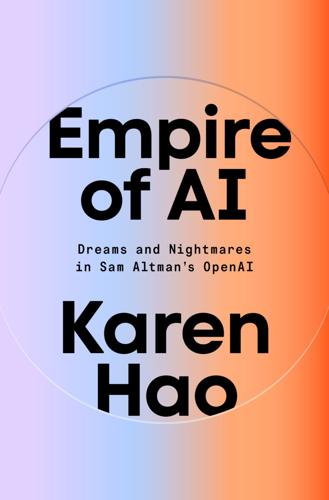
Empire of AI: Dreams and Nightmares in Sam Altman's OpenAI
by
Karen Hao
Published 19 May 2025
Musk and Altman would be cochairs. Altman and Brockman had also joined Musk in his pledge to see that the lab would have $1 billion in funding. So had Jessica Livingston, Peter Thiel, and LinkedIn cofounder Reid Hoffman. Hoffman had worked with Musk and Thiel at PayPal and often invested with them in startups as the “PayPal mafia.” “We expect to only spend a tiny fraction of this in the next few years,” the post said of the funding. In the final countdown before the announcement, Sutskever had almost stayed at Google. To all of the other founding members, OpenAI had offered a base salary of $175,000 and YC or SpaceX stock.
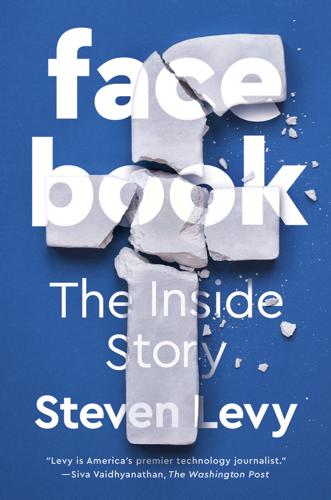
Facebook: The Inside Story
by
Steven Levy
Published 25 Feb 2020
Criticism or not, he wasn’t going to pass on this opportunity. Thiel was head of the Founders Fund, an investment firm he started after leaving the company that made his own fortune, PayPal. (Besides Hoffman, other veterans of that payment company included Tesla founder Elon Musk and entrepreneur Max Levchin. They would become known as the PayPal mafia because of their undue influence—in both investing and philosophy—on Silicon Valley thereafter.) Thiel didn’t name his fund by accident: he believes that the prime indicator of a successful company is a driven, iconoclastic founder, the kind of person who perseveres even when others think they are utterly insane.